Do you recognize these faces?

Easier than pancakes, and


Do you recognize these faces?

Easier than pancakes, and

For at least the sixth time since 2017, a workshop demonizing Israel was featured at the annual Pittsburgh Racial Justice Summit at the Pittsburgh Theological Seminary on Jan. 20 and 21.

The Racial Justice Summit is an initiative of the Black and White Reunion, established in 1996 by Tim Stevens to help bridge the city’s racial divide. The summit includes keynote addresses and many smaller workshops.
On Saturday, Jan. 21, a workshop presenting a one-sided view of the Palestinian/Israeli conflict, entitled “Justice for Palestine with a focus on the killing of journalist Shireen Abu Akleh,” was led by Kate Daher, a founding member of the Pittsburgh Palestine Solidarity Committee. Other speakers included Mohammed Bamyeh, a sociology professor at the University of Pittsburgh and a supporter of the BDS movement against Israel; Robert Ross, a Point Park professor and outspoken critic of Israel; Rev. Dr. B. De Neice Welch of the Bidwell Presbyterian Church; and Rev. John Welch of the Sixth Mount Zion Missionary Baptist Church.
The session was recorded and is available to view on Facebook.

Daher opened the workshop by attempting to link Israel to the Jan. 18 killing of an

environmental activist in Atlanta. The killing occurred in an area where a training center to boost police recruitment and retention is being built. Activists were protesting the center, arguing that its construction would be environmentally problematic and would result in a facility used for “urban warfare.”
The Georgia Bureau of Investigation, which investigated the incident, concluded that the activist shot a Georgia State Patrol Trooper and law enforcement personnel “returned fire in self-defense,” thereby killing the activist.
Daher tried to link Israel to the incident, explaining that Israel is training American police officers in what anti-Israel activists call “The Deadly Exchange.”
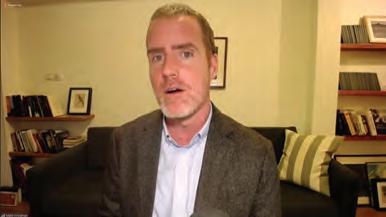
“Our police forces from Pittsburgh and all across the country have gone to Israel to train in crowd control,” she told the approximately 40 people in the session. Former Pittsburgh Mayor Bill Peduto, she said, attended a conference in Israel “on how to militarize our police — and they train in Israel to do that. We are directly connected to this international issue and, without international solidarity, we are doomed.”
Daher then spoke about the killing of Al Jazeera journalist Shireen Abu Akleh last May. Daher falsely asserted that the “Israeli
Even before Israel’s Prime Minister Benjamin Netanyahu announced in late December that he formed a coalition government, critics derided it as the most far-right governing bloc in the history of the country. Concerns including the weakening of the country’s Supreme Court, changes to the Law of Return, a further push into the West Bank, the rights of the LGBTQ+ community and Arab-Israelis were only some of the issues causing anxiety for many, in and out of the country.
The new coalition pieced together by Netanyahu has been in place for more than a month and Israelis across the globe have seen the first fruits of the new alliance.
Pini Sofayov, an Israeli living in the South Hills, said he “loves” the new government, and said the anxiety surrounding it is the result of propaganda from the political left.
Israel, Sofayov said, needed changes, including to its high court. The Supreme Court — whose justices are appointed by a small judicial committee, and not elected — has controlled the country, not the government, and needs to be checked, he said.
Minorities, he added, enjoy far greater protections in Israel than in neighboring countries.
“[Minorities] have to be worried if they’re going into Gaza or into the Palestinian territory,” Sofayov said. “They’re running away from there. Israel is the most friendly country for gay people, in the world.”
Those on the left “don’t know how to lose,” he said, and don’t understand Middle East politics.

“If you don’t show strength over there, it’s all over,” Sofayov said. “It’s the rule of the


his power and avoid the corruption charges he’s facing, Friedman said.
By Adam Reinherz | Staff WriterDays after penning an open letter to North American Jews with fellow thought leaders Yossi Klein Halevi and Daniel Gordis, journalist and author Matti Friedman reiterated his concerns about the Israeli government and the responsibility of Diaspora Jews to a Pittsburgh audience. While his talk was originally billed as covering international media bias against Israel, the topic was changed a few days before the event to “Understanding Israel’s Political Crisis.”
Friedman spent most of the 75-minute program explaining misconceptions about Israeli politics while calling on Pittsburghers to act.
There are two primary misunderstandings about Israeli politics, Friedman explained.
First, North Americans have “a tendency to see other countries’ politics through the lens of their own,” he said. Although issues such as gun control, marriage equality and abortion can position one along the American political spectrum, those topics don’t create similar schisms in Israel. “What makes you right and left is your approach to the Arab world, and not any of the internal issues that Americans think of as right and left issues,” he said. “It’s really a question of your approach to the conflict and how to handle it.“
The second misconception, or “underlying issue,” Friedman said, is Israel’s ethnic makeup. “We tell a very European story about the country,” he said, “as if the Jews who came here from the Islamic world are kind of a footnote.”
The reality is much different. About 20% of Israel’s population is Muslim, and of the remaining 80%, more than half have Jewish
roots “in the Islamic world and not in Europe,” Friedman said. “It’s a very Middle Eastern-style of tradition, and you can’t really understand the country without understanding that.”
North American Jews of European descent and Israelis of European descent often see interactions with Muslims beginning in 1948. But that understanding doesn’t hold “for most Israeli Jews,” Friedman continued. “They had always lived among Muslims, and they bring that understanding to the state of Israel. And they also bring a very kind of strong tribal affiliation with Jews and a suspicion of Western naivete.”
Those backdrops shed light on the current “crisis,” in which Israel is being led by t he “most extreme government in its history,” Friedman said.
The appointment of “racist hooligan” Itamar Ben-Gvir as Israel’s minister of national security, and formerly convicted Aryeh Deri as interior minister and health minister, were among several “warning signs” for centrists that Prime Minister Benjamin Netanyahu’s government “had come into power, really with, almost with a desire to avenge the year-and-a-half during which they weren’t in power,” Friedman said.
The government’s recent attempts to “gut the judiciary,” by ensuring that 61 members of the Knesset can veto the Supreme Court’s rulings, reflects an approach by Netanyahu to buttress
The “breakneck” speed with which the government is trying to pass this legal reform is troubling, he continued.
“This is the kind of thing that should be a year of national discussion, with members of the opposition and people from the judiciary,” Friedman said. “Even if you think it’s good — which it isn’t — but even if you think it’s good, this is a very dramatic change in the way the country is run and it needs to be presented to people. It wasn’t presented to the electorate before the election. No one explained to the electorate that this was the plan. It was deliberately hidden and then pulled out after the election.
“The government has rejected calls for some kind of compromise talks, which are coming from the opposition, and they say they’re going to pass it by the end of March,” he added. “So that is why the country has freaked out. That’s why we’re seeing this kind of activity on the street.”
For the past five weeks, more than 100,000 people have protested in Tel Aviv and across Israel.
Friedman has joined the Saturday evening protests in Jerusalem and tweeted his observations.
He told Pittsburghers that he has “always leaned left and centrist,” and that recent months have generated a distressing realization.
“I don’t think there’s any way — certainly not for me as an honest observer — to avoid saying that this is an extreme and reckless and irresponsible government that’s come to power with less than half of the popular vote,” he said. “There’s no sense that a national consensus is necessary…There isn’t going to be an attempt at unity. There’s not going to be an attempt to build some kind of broad governing coalition, which Netanyahu has always done.”
For Pittsburghers and others concerned about the future of Israel, though, there is a path forward, he said: “The end here, the correct approach, in my opinion for our friends, is to keep your eyes on Israeli society and remember that Israeli politics are not the whole story.”
There’s a tendency to equate one’s leader with its people — to assume, for example, that Netanyahu represents all of Israel, or that either Joe Biden or Donald Trump represent all of America — “but of course that’s not true,” Friedman continued. “These are people elected. America is something much more complicated than the presidents or Congress, and the same is true in Israel.”
Ideological debates will persist, but Pittsburghers should remember the “miraculousness” of Israel and continue its work, he said.
Friedman’s talk was supported by the Jewish Federation of Greater Pittsburgh. Before concluding the program, Federation Foundation Community Scholar Rabbi Danny Schiff reminded listeners that the Jewish holiday of Tu B’Shevat, which celebrates the birthday of trees, had begun in Israel.
Given Friedman’s remarks, Tu B’Shevat serves as an apt metaphor, Schiff said.
“What could be more optimistic an act than in the darkness of winter, in the cold, going out and planting new seeds with the resolution and the optimism that from those new seeds something will blossom, something will sprout and come forward,” he said. “Some do and some don’t, but even if you see this as a moment that is dark, the Jewish people always take moments that are dark and plant new seeds for a better, more verdant future. Let’s hope that that’s what this moment will represent in Israeli life.” PJC
Adam Reinherz can be reached at areinherz@pittsburghjewishchronicle.org.
5915 Beacon St., 5th Floor Pittsburgh, PA 15217
Main phone number: 412-687-1000
Subscriptions: 410-902-2300, ext. 1
SUBSCRIPTIONS subscriptions@pittsburghjewishchronicle.org
410-902-2300, ext. 1
TO ADVERTISE advertising@pittsburghjewishchronicle.org
724-713-8874
EDITORIAL DEPARTMENT
Email: newsdesk@pittsburghjewishchronicle.org
BOARD OF TRUSTEES
Evan H. Stein, Board Chair
Gayle R. Kraut, Secretary
Evan Indianer, Immediate Past Chair
Gail Childs, Dan Droz, Malke Steinfeld
Frank, Seth Glick, Tammy Hepps, Cátia Kossovsky, David Rush, Charles Saul
GENERAL COUNSEL
Stuart R. Kaplan, Esq.
Jim Busis, CEO and Publisher 412-228-4690 jbusis@pittsburghjewishchronicle.org
EDITORIAL
Toby Tabachnick, Editor 412-228-4577 ttabachnick@pittsburghjewishchronicle.org
Andy Gotlieb, Contributing Editor

Adam Reinherz, Staff Writer 412-687-1000 areinherz@pittsburghjewishchronicle.org
David Rullo, Staff Writer 412-687-1047 drullo@pittsburghjewishchronicle.org
ADVERTISING
Phil Durler, Senior Sales Associate 724-713-8874 pdurler@pittsburghjewishchronicle.org
PRODUCTION
Jeni Mann Tough
Production Manager
Carl Weigel
Art/Production Coordinator Subscriptions subscriptions@pittsburghjewishchronicle.org 410-902-2300, ext. 1

Published every Friday by the Pittsburgh Jewish Publication and Education Foundation 5915 Beacon St., 5th Floor Pittsburgh, PA 15217
Phone: 412-687-1000
POSTMASTER:
Send address change to PITTSBURGH JEWISH CHRONICLE, 5915 BEACON ST., 5TH FLOOR PITTSBURGH, PA 15217 (PERIODICAL RATE POSTAGE PAID AT PITTSBURGH, PA AND AT ADDITIONAL MAILING OFFICES)

USPS 582-740
Manuscripts, letters, documents and photographs sent to the Pittsburgh Jewish Chronicle become the property of this publication, which is not responsible for the return or loss of such items.
The Pittsburgh Jewish Chronicle does not endorse the goods or services advertised or covered in its pages and makes no representation to the kashrut of food products and services in said advertising or articles. The publisher is not liable for damages if, for any reason whatsoever, he fails to publish an advertisement or for any error in an advertisement. Acceptance of advertisers and of ad copy is subject to the publisher’s approval. The Pittsburgh Jewish Chronicle is not responsible if ads violate applicable laws and the advertiser will indemnify, hold harmless and defend the Pittsburgh Jewish Chronicle from all claims made by governmental agencies and consumers for any reason based on ads appearing in the Pittsburgh Jewish Chronicle


With just a few months until the April start date of the trial of the man accused of murdering 11 Jews during Shabbat services at the Tree of Life building, legal scholar David Harris is aiming to prepare the community. Through two classes on U.S. law and criminal justice, he is hoping to ready local residents for a complex and arduous legal process.
“The whole objective here is to help the community understand,” Harris said.

Though the backdrop to Harris’ Feb. 15 and 22 sessions is the upcoming trial, the University of Pittsburgh law professor isn’t planning on addressing the case specifically.
“I’m not part of the prosecution team,” he said. “I don’t have any special information from them or deep learning about the case itself. The objective is to show people how things work and a general sense of what to expect. The idea is that knowledge is power: We can empower ourselves to understand what will come, and that will help us be stronger and more resilient as the events unfold.”
Harris said the idea for the talks came from Maggie Feinstein and Ranisa Davidson of the 10.27 Healing Partnership.
Feinstein contacted Harris several months ago after recognizing the trial would raise “a lot of intellectual and emotional questions,” she said.
Various programs and organizations will be providing tools for managing emotional aspects, but it was less certain whether resources were available to address pragmatic and theoretical legal issues, Feinstein said.
“Justice is a personal decision,” she explained, “but we want people to have information about how our legal system is viewing justice in this situation.”
There’s a need for communal empowerment, Feinstein said, and Harris is well-suited to facilitate it.
Born to a large Jewish family in Chicago, Harris and his wife are members of Temple Sinai in Pittsburgh and Congregation Shir Tikvah in Troy, Michigan (where his daughter Alicia Harris serves as rabbi). He is the Sally Ann Semenko Endowed Chair and Professor of Law at the University of Pittsburgh School of Law and has spent decades addressing the interplay between law and community.
Harris’ scholarship and teaching address search and seizure law, police behavior, and law enforcement and race. His podcast, “Criminal Injustice,” ran for six years and featured interviews with police chiefs, judges, prosecutors, journalists, policy experts and authors. The 151-episode series was geared toward a general audience and generated
digestible concepts, Harris is regularly featured on National Public Radio and has appeared on The Today Show and Dateline NBC as well as in the pages of The New York Times and Wall Street Journal.
“I do my full share of legal journal articles and speaking at academic conferences and so forth,” he said. “But I have always prided myself on being able to help people understand how the system operates…so that we can all see what we have in the legal system, why it works well or poorly, and why we see the results in the things that we do.”
Harris said he immediately acquiesced to offering sessions about U.S. law and criminal justice as a lead-up to the trial.
“Being from the community myself, the idea of doing a service for those who had been affected either very directly, or more like my family, to help us all understand what is coming, is something I deeply value,” he said.
Harris added that he felt a “duty” to share his insights and expertise.
“That piece of Pirkei Avot, which is really having its season right now with Governor Shapiro…I really do believe it,” Harris said.
The Mishnaic text Harris referenced states, “It is not your duty to finish the work, but neither are you free to neglect it.”
Harris said that rabbinic teaching has long driven his desire for communal betterment, and he’ll use whatever talents and expertise he has to present compelling and explanatory material as well as leave “plenty of time for people to ask questions.”
Feinstein said that by attending Harris’ classes either in person at the Squirrel Hill branch of the Jewish Community Center or online, Pittsburghers will be better prepared for what’s ahead.
“Through learning,” Harris said, “which is something that we as a community have always put a high premium on — whether we’re talking about the community of Pittsburgh with its great universities or the Jewish community which has a tradition of


Submit calendar items on the Chronicle’s website, pittsburghjewishchronicle.org. Submissions also will be included in print. Events will run in the print edition beginning one month prior to the date as space allows. The deadline for submissions is Friday, noon.
q FRIDAY, FEB. 10 – FEB. 28
ZOA Pittsburgh is now accepting applications for its Scholarship to Israel Program from any local Jewish teen who will be a junior or senior in high school in September of 2023 and is participating in a qualified, structured, study trip to Israel. Applicants will be evaluated on their involvement in Jewish organizations, volunteerism and on an essay about Zionism and Israel.
Three $1,000 scholarships will be awarded. Applications will be accepted through Feb. 28. For information and applications, contact ZOA Executive Director Stuart Pavilack at stuart.pavilack@zoa.org or 304-639-1758.
q SATURDAY, FEB. 11
Join Congregation Beth Shalom for Clues and Schmooze, a fun trivia event, including a raffle, open bar and snacks. Trivia will be in teams of three to six. Bring your own team or be matched up at the door. Drinks start at 7:30 p.m. Trivia game starts at 8:15 p.m. The cost is $30 per person in advance, or $35 per person at the door. To register in advance, visit bethshalompgh.org/ clues-and-schmooze-2023.
q SUNDAY, FEB. 12
Chabad of Squirrel Hill presents the six-week program Jewish Children’s Discovery Center. Children will explore stories of our heroic Jewish fathers and mothers and bake desserts that relate to each one. 10:30 a.m. 1700 Beechwood Blvd. $75. chabadpgh.com.
The Jewish Genealogy Society of Pittsburgh and the Rauh Jewish Archives at the Heinz History Center present: “Researching Your Roots with LitvakSIG.” Join Carol Hoffman who will survey Litvak genealogical records available online. Free for JGS-Pittsburgh members; $5 for the general public. Noon. heinzhistorycenter.org/event/jgspittsburgh-presents-researching-your-roots-with-litvaksig.
Classrooms Without Borders and Rodef Shalom Congregation present Israeli actor/director Roy Horovitz in his production of “My First Sony.” The play tells the story of Yotam, an 11-year-old, who becomes obsessed with documenting his life after receiving a children’s tape recorder, his “First Sony.” 2 p.m. Free with suggested donation. Rodef Shalom Congregation, Levy Hall, 4905 Fifth Ave. cwbpgh.org/event/my-first-sony.
Join Temple Sinai on Zoom to learn about author Howard Mortman’s book “When Rabbis Bless Congress,” which includes the congregation’s Rabbi Daniel Fellman. Free and open to the public. 2 p.m. temple Sinai. Register at templesinaipgh.org.
q SUNDAYS, FEB. 12 – MARCH 12
Join a lay-led online Parashah study group to discuss the week’s Torah portion. No Hebrew knowledge needed. The goal is to build community while deepening understanding of the text. 8:30 p.m. For more information, visit bethshalompgh.org.
q SUNDAYS, FEB. 12 – DEC. 4
Join Chabad of Squirrel Hill for its Men’s Tefillin Club Enjoy bagels, lox and tefillin on the first Sunday of the month. 8:30 a.m. chabadpgh.com.
q MONDAY, FEB. 13
Women of Temple Sinai invites you to experience a “Year of Spices” on the second Monday of each month. February’s guest instructor is Leon Edelsack, who will feature Aleppo pepper and Baharat in the menu. 6 p.m. $15 Register at templesinaipgh.org.
q MONDAYS, FEB. 13 – MARCH 13
Join Congregation Beth Shalom for a weekly Talmud study. 9:15 a.m. For more information, visit bethshalompgh.org.
q MONDAYS, FEB. 13 – MAY 15
Understanding the Torah and what it asks of us is one of the most important things a Jew can learn. But most Torah classes begin in Genesis and never finish the first
book. If you want a comprehensive overview of the whole Torah, Torah 1 is the course for you. In the first year of this two-year Zoom course, Rabbi Danny Schiff will teach Genesis, Exodus and the first half of Leviticus. In the second year, he will complete Leviticus and cover Numbers and Deuteronomy. $225. 9:30 a.m. foundation.jewishpgh.org/torah-1.
q TUESDAYS, FEB. 14 – MARCH 14
Join Temple Sinai for a weekly Talmud class with Rabbi Daniel Fellman. Noon. On site and online. For more information and for the Zoom link, contact Temple Sinai at 412-421-9715.
q TUESDAYS, FEB. 14 – MAY 2
In “Israel Literature as a Window to Israel Society,” Rabbi Danny Schiff will facilitate an encounter with Israeli society through the pens of Israel’s leading writers, discovering voices that are original, contemporary and honest. This 10-part Melton course takes you on a literary journey offering a fresh examination of the ever-relevant issues faced by Israeli writers. Together, learners will read poetry and prose that is challenging and self-critical, gaining insights into the Jewish national psyche. 9:30 a.m. $160. jewishpgh. org/event/israeli-literature-as-a-window-to-israelisociety/2023-02-07.
q TUESDAYS, FEB. 14 – DEC. 26
Led by a certified yoga teacher, yoga class at Temple Sinai is welcome to all levels. No experience necessary. 16 and older. $15. Register at templesinaipgh.org.
q WEDNESDAY, FEB. 15
Join the 10.27 Healing Partnership for Creative Journaling. Learn journaling skills that can improve your emotional regulation during stressful situations. 11 a.m. 10.27 Healing Partnership Suite, third floor of the Squirrel Hill JCC, 5738 Forbes Ave, 15217. 1027healingpartnership.org/event/meditative-journaling.
The Squirrel Hill AARP will host Bonnie Caripolti, director of Juniper Village. Caripolti will present “Ways to Maintain Your Brain as you Age,” discuss the differences between dementia and Alzheimer’s diseases and share tips that you can do today to prevent memory loss as you age. Refreshments will be served. 1 p.m. Rodef Shalom Congregation, Falk Library. For additional information, contact Marcia Kramer 412-656-5803.
q WEDNESDAYS, FEB. 15, 22
U.S. Law and Criminal Justice: From the Community Perspective, a three-session community course, geared to lay people, will support learners in their understanding of the U.S. criminal legal process, the systems of justice, and criminal trials. The information will help the community understand what goes on in the criminal courts, how trials work, what justice can look like and how we might attain it, and the special features and procedures of death penalty cases. Each session, taught by Professor David Harris of Pitt’s School of Law, will present on a different facet of the justice system. 6:30 p.m. In-person and virtual. 10.27 Healing Partnership Suite, third floor of the Jewish Community Center, 5738 Forbes Ave., 15217. 1027healingpartnership.org/series/u-s-law-and-criminaljustice-from-the-community-perspective.
q WEDNESDAYS, FEB. 15 – MARCH 2
Join Chabad of the South Hills for “Book Smart,” a six-part page-turner that courses through Judaism’s most important titles and the authors who inscribed them. From the Five Books of Moses to the 63 tractates of the Talmud, Book Smart proves that we are called the People of the Book for a reason. 7:20 p.m. At Chabad of the South Hills, 1701 McFarland Road or Zoom. chabadsh.com/civicrm/event/info.
q WEDNESDAYS, FEB.15 – APRIL 19
Participate in weekly gentle yoga with a skilled and caring yoga instructor experienced in trauma-informed care. Experience an hour of gentle and calming yoga and learn yoga you can do at home and in stressful situations, including while seated. 3 p.m. 10.27 Healing Partnership suite inside the Squirrel Hill JCC. Facilitated by Susie Balcom and open to everyone. Register here: https://forms.gle/JQtgrutJyByaMM5K6.
q WEDNESDAYS, FEB. 15 – MAY 24
Registration is now open for “Melton Core 1: Rhythms and Purposes of Jewish Living.” This 25-lesson course will take you through the year’s cycle — the life cycle traditions and practices that bind us together. Explore not just the what is and how is of Jewish living, but the why is that go with them. 7 p.m. $300 per person, per year (25 sessions), includes all books and materials. Virtual. foundation.jewishpgh.org/melton-core-1.
q WEDNESDAYS, FEB. 15 – DEC. 27
Temple Sinai’s Rabbi Daniel Fellman presents a weekly Parshat/Torah portion class onsite and online. Call 412421-9715 for more information and the Zoom link.
Spend an evening with the FBI experts as they discuss what to know about violent extremism and how to best prepare in the case of radicalization and hate crimes. The experts will give an inside view on what to expect and what to do when the situation arises. Presented by the Jewish Federation of Greater Pittsburgh. 6:30 p.m. Rodef Shalom Congregation, 4905 Fifth Ave. jewishpgh.org/event/an-inside-look-at-extremismradicalization-and-hate-crimes.
q THURSDAY, FEB. 16
Join NCJW for a Working Mom Support Group, for mothers who work outside the home. Facilitated by group therapist Cortney Seltman, there will be snacks, tea, support, a babysitter, and a chance to vibe with other moms like you. This event is for anyone who identifies as a mom. Free. 7 p.m. 1620 Murray Ave. ncjwpghevents. org/upcoming-events
q THURSDAYS, FEB. 16; MARCH 2, 23; APRIL 13, 27
This bimonthly Refaeinu healing circle is led by Sara Stock Mayo, a spiritual leader, trained drama therapist, musician and poet. The space will be open to anyone who seeks to create community in shared healing rituals, Jewish texts and music, art making and embodied wellness practices. 10.27 Healing Partnership Suite, JCC of Greater Pittsburgh. 7 p.m. To register, visit forms.gle/pAJoXvNXSJ9Ks3ow9.
q THURSDAY, FEB. 16 – SATURDAY, FEB. 18
Join the National Council of Jewish Women for the first Repro Shabbat since the Supreme Court overturned Roe v. Wade. Stay tuned for details on their weekend packed full of events. jewsforabortionaccess.org/reproshabbat.
q SATURDAY, FEB. 18
Celebrate Sisterhood Shabbat with Congregation Beth Shalom as they honor Helen Feder and Shiri Steindel Friedman. Special guest speaker is Rabbi Rachel Adler. 9:15 a.m. bethshalompgh.org.
q SUNDAY, FEB. 19
Join Chabad of the South Hills for a Jewish Comedy Night featuring comedian Robert Cait. Open bar and hors d’oeuvres. 7 p.m. $54 adult/$100 couple. Carnegie Stage, 25 W. Main St. chabadsh.com/comedy
q MONDAYS, FEB. 20; MARCH 6
Join the 10.27 Healing Partnership in the South Hills for Arts in the Community, a collaborative series of therapeutic art workshops with JFCS. This art-based mindfulness program is free and open for all who are interested. The group will explore ways making art can help regulate the nervous system, promote playfulness, imagination, and connect us more deeply to our bodies, emotions, thoughts and worldviews. Attendees will come together in community as we explore different art mediums, share our personal experiences, and reflect on how art can influence us all. South Hills JCC, 345 Kane Blvd. Register at forms.gle/qPu933puGg5fQQK2A.
q WEDNESDAY, FEB. 22
Enjoy a tasty lunch while exploring meaningful messages from the month of Adar with Chani Altein at Chabad of Squirrel Hill’s Ladies Lunch and Learn. Noon. $18. 1700 Beechwood Blvd. chabadpgh.com.
Hadassah Greater Detroit invites you to “Beyond Shtisel: A Closer Look at the Hasidic World,” a four-part virtual series learning about different Hasidic communities, discussing some provocative issues and viewing videos of Hasidim in their home environments. Gain an
understanding of what the life of Hasidim is really like. 7 p.m. $10 per session or $35 for all four sessions. hadassahmidwest.org/GDShtisel.
Women are invited to join Chabad of Squirrel Hill on Zoom for a Rosh Chodesh gathering and explore meaningful messages for the month of Adar. 7:30 p.m. chabadpgh.com.
q THURSDAYS, FEB. 23 – MAY 17
In the new 10-part Zoom course, “Sacks: To Heal A Fractured World,” Rabbi Danny Schiff will explore “To Heal a Fractured World,” Rabbi Jonathan Sacks’ book on the nature of Jewish responsibility for the broader world. Students will be invited to read this pivotal book and to discuss its contents in order to arrive at a better understanding of the views of Rabbi Sacks on the goals and vision of Judaism. 9:30 a.m. $145 for all 10 sessions. jewishpgh.org/event/sacks-to-heal-a-fracturedworld/2023-02-2.
q THURSDAY, FEB. 23
Tammy Hepps, historian of the local Jewish community, and Dan Bouk, historian of science, will use the publication of Bouk’s “Democracy’s Data: The Hidden Stories in the U.S. Census and How to Read Them” as an opportunity for the wide-ranging discussion Data, Democracy, and the Census: History and Genealogy in Conversation. The two will look at the ways seemingly bland statistics of the census bureau are actually a rich trove of research material for data scientists and everyday Americans alike. They will demonstrate how close-reading historical census data can acknowledge and honor lives lived at the margins of U.S. society, whether those lives belonged to Jewish people in Homestead or queer folk in Greenwich Village. 5 p.m. Kresge Theater, College of Fine Arts at Carnegie Mellon University, 5000 Forbes Ave, 15213.
Join the Jewish Fertility Foundation for its Kickoff Event, an evening of desserts, drinks and celebration. Free. 7 p.m. JCC Pittsburgh, Levinson Hall. jewishfertilityfoundation. org/KICKOFF.
q SUNDAY, FEB. 26
Answer the call and be a part of something Super. Represent your favorite Jewish Pittsburgh agency at the Jewish Federation of Greater Pittsburgh’s Super Sunday. The organization with the most participants will receive $1,800. There will be three sessions beginning at 9:30 a.m. 2000 Technology Drive. For more information and to register, visit jewishpgh.org/event/super-sunday.
q MONDAY, FEB. 27
Scott Benarde spent six years combining his love of Judaism, journalism and rock ‘n’ roll to research and write “Stars of David: Rock ‘n’ Roll’s Jewish Stories,” about how Judaism influenced popular music and the people who created it. Hear Benarde talk about his book at Temple Sinai. Free and open to the public. 7 p.m. Register at templesinaipgh.org.
q THURSDAYS, MARCH 2; APRIL 6; MAY 4; JUNE 1
Join local clergy from Jewish and Christian backgrounds for the Christian Jewish Dialogue, a monthly discussion exploring topics of similarities and differences. Noon. Rodef Shalom Congregation. rodefshalom.org.
q SUNDAY, MARCH 5
Get into the Purim spirit with Chabad of Squirrel Hill with Kids in the Kitchen. Make festive hamantashen to take home and share. 1 p.m. $10. 1700 Beechwood Blvd. chabadpgh.com.
Gather with other teen girls to bake desserts for Squirrel Hill’s Giving Kitchen at Chabad of Squirrel Hill’s Teen Cooking Club. 3:30 p.m. 1700 Beechwood Blvd. chabadpgh.com.
q THURSDAYS, MARCH 9, APRIL 20, MAY 18
Join the JCC Buffalo for monthly virtual readings as part of the Jewish Poetry Series. Hosted by Philip Terman and Baruch November. Each month will feature different Jewish poets reading selections of poems that include but are not limited to Jewish themes, values and ideas. 7 p.m. Free and open to the community. jccbuffalo. org/events/2023/02/09/arts-and-culture/virtual-jewishpoetry-reading-series. PJC
Ohio investigating a Nazi homeschooling network teaching children to love Hitler
Ohio’s Department of Education is investigating a home-schooling network that claims public schools are run by “Zionist scum,” teaches kids to say “Sieg Heil” in class and instructs fellow parents not to give their kids “Jewish media content,” JTA.org reported.
These are the more than 2,500 members of the “Dissident Homeschool Network,” a channel on the social network messaging app Telegram. The “dissidents” are a group of Nazi parents who share home-schooling lesson plans extolling the virtues of Hitler and white nationalism — while relying on a popular social media account run by a Jewish woman to provide ammunition for their hatred. The founders of the group were recently unmasked by a hate group monitor as a couple in rural Upper Sandusky, Ohio.
“There is absolutely no place for hate-filled, divisive and hurtful instruction in Ohio’s schools, including our state’s home-schooling community,” Stephanie Siddens, the interim superintendent of public instruction at Ohio’s education department, told Vice News. “I emphatically and categorically denounce the racist, antisemitic and fascist ideology and materials being circulated.”
Ohio Governor Mike DeWine, along with Rep. Bob Latta, whose district encompasses Upper Sandusky, and Rep. Jim Jordan, all gave
statements to Vice News condemning the group. But Ohio officials say that there is little to no home-schooling oversight from the state board of education.
Hebrew College to admit, ordain rabbinical students whose partners aren’t Jewish Hebrew College will begin admitting and ordaining rabbinical students in interfaith relationships, according to new admissions standards revealed on Jan. 31, JTA.org reported.
The decision makes the pluralistic seminary outside of Boston the second major rabbinical school in the United States to do away with rules barring students from dating or marrying non-Jews. The Reconstructionist Rabbinical College in Wyncote first did so in 2015.
Hebrew College’s decision comes as rabbinical schools compete over a shrinking pool of applicants and after decades of rising rates of intermarriage among American Jews.
Rabbi Sharon Cohen Anisfeld, Hebrew College’s president, announced the policy change in an email to students and graduates. She said the decision, which followed a year and a half of review, came amid a broad revision of the seminary’s “guiding principles for admission and ordination.”
France’s updated plan to counter antisemitism will bring students to sites of attacks
The French government updated its plan for fighting antisemitism and racism, which
Feb. 13, 1931 — British PM rejects White Paper
will require teachers to receive training on the topic and all French schoolchildren to visit the site of an antisemitic or racist incident, JTA.org reported.
Those visits could include Holocaust sites, and roving exhibitions about antisemitism and racism will also be set up in schools, France’s Prime Minister Elisabeth Borne announced on Jan. 29.
The plan was first adopted in 2015 but is required to be updated every three years. In addition to the educational additions, French law will also be adapted to make charges of serious antisemitic or racist offenses enough to stop the accused from fleeing the country.
The plan was put together by the Interministerial Delegation for the Fight Against Racism and Antisemitism, or DILCRAH, as it is known by its French initials, with advisory input from the American Jewish Committee.
Stephen Sizer, a retired British vicar who once claimed Jews and Israel were behind 9/11, was banned from the Anglican ministry until 2030, JTA.org reported.
For more than two decades as a priest and academic in southern England, Sizer made a name for himself as an outspoken opponent of Christian Zionism, completing a Ph.D. thesis and writing several books on the topic.
“It is irresponsible to believe that God will bless Christians materially if they support the largely secular State of Israel,” he wrote
in his 2007 book “Zion’s Christian Soldiers.”
The British Jewish community welcomed the church tribunal’s decision.
“Given that he indulged in ‘antisemitic activity’ and caused grievous offence to the Jewish community over a number of years, this is the correct decision,” said Marie Van der Zyl, president of the Board of Deputies of British Jews, which lodged the initial complaint against Sizer, in a statement.

Jewish population in Judea and Samaria tops half a million
The Jewish population in Judea and Samaria has surpassed half a million people, according to a report compiled by former MK Ya’akov Katz, JNS.org reported.
There were 502,991 Jews living in Judea and Samaria as of Jan. 1, according to the document, which culled data from the Israeli Interior Ministry’s Population Registry.
That doesn’t include the nearly 350,000 Jews living in the eastern part of Jerusalem, which the Palestinians claim despite the area being by law a part of Israel’s unified capital.
The Jewish population in Judea and Samaria is up 15.5% from January 2018, when 435,159 Jews lived in the territories captured after Arab states initiated what became known as the Six-Day War.
The report projects the Jewish population in Judea and Samaria to exceed 600,000 by 2030, 700,000 by 2035 and 1 million by 2047. PJC
Compiled by Andy GotliebItems are provided by the Center for Israel Education (israeled.org), where you can find more details.
Feb. 10, 2009 — Netanyahu wins by finishing second
Tzipi Livni’s Kadima wins 28 seats in the election for the 18th Knesset, but Benjamin Netanyahu’s Likud, with 27 seats, is the effective winner because it is better positioned to form a governing coalition.
Feb. 11, 1995 — AJC adopts Israel-Diaspora policy
The American Jewish Committee replaces its 1950 policy statement on IsraelDiaspora relations, which emphasized the independence of the U.S. and Israeli Jewish communities, with an approach focusing on interdependence.
Feb. 12, 1958

The Knesset votes 96-0 for the first of a series of basic laws that fill the role of a constitution.
Basic Law: The Knesset outlines election procedures and the rules and functions of the 120seat parliament.
In a letter to Chaim Weizmann, British Prime Minister Ramsay MacDonald disavows the threats posed by the 1930 Passfield White Paper, which calls for restricting Jewish immigration and land purchases.
Feb. 14, 1896 — Herzl publishes ‘Jewish State’
p Theodor Herzl’s “Der Judenstaat” mentions Palestine and Argentina as places where the Jewish state could be established.
Theodor Herzl’s “Der Judenstaat” (“The Jewish State”) is first published in Vienna with a press run of 500 copies. The pamphlet calls for Jews to organize themselves to gain a territory and eventually a state.
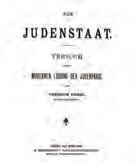
Feb. 15, 2017 — Netanyahu visits Trump White House
President Donald Trump plays host to Prime Minister Benjamin Netanyahu in the Israeli’s first trip to Washington since his speech to Congress against the Iran nuclear deal in March 2015.
Feb. 16, 1910 — Children’s author
Miriam Roth is born
Miriam Roth, who elevates children’s literature in Israel, is born in Slovakia in the Austro-Hungarian Empire. She makes aliyah in 1931 but doesn’t begin writing her 23 children’s books until the 1970s.

Roy Horovitz, an Israeli actor, director and dramaturg, is treating Pittsburghers to a series of presentations and performances.
Between Feb. 11-16, Horovitz will meet with students from Pittsburgh Creative and Performing Arts and Carnegie Mellon University, as well as scholars and community members.
Speaking by phone from Tel Aviv, Horovitz said he’s eager to visit Pittsburgh and work with so many people here: “I hope it will be the beginning of a wonderful friendship.”
School of Drama.
Those interested in seeing more of the Israeli talent are encouraged to attend a Feb. 12 free performance at Rodef Shalom Congregation in Shadyside. During the Sunday afternoon show, Horovitz will present “My First Sony,” an award-winning monodrama based on Benny Barbash’s bestseller of the same name.
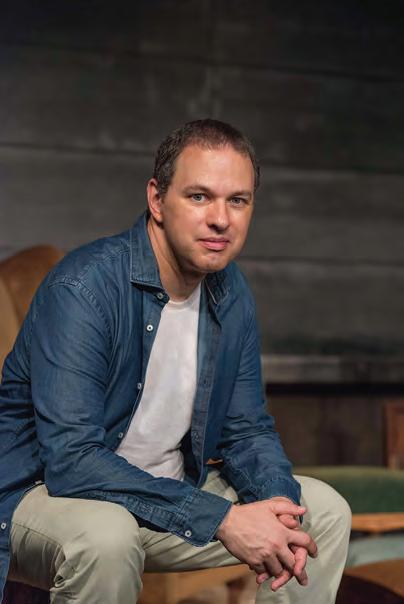
The story, Horovitz said, follows a “bittersweet family drama told from the point of view of an 11-year-old.”
In playing 11-year-old Yotam, as well as a slew of other friends and relatives, Horovitz shares the humor and pain of a young Israeli boy who chronicles life via a tape recorder.
Horovitz has performed the oneman show throughout the United States


Horovitz’s trip is sponsored by Classrooms Without Borders.
Tsipy Gur, CWB’s founder and executive director, said she’s delighted for Pitttsburghers to learn from Horovitz.
“He has an ability to stimulate a diverse audience and can connect with high school students, adults and professors,” she said. Given Horovitz’s expertise in Holocaust and Israeli theater, “he can reach out to many different populations.”
Horovitz is well known throughout the Jewish state. In addition to working with the Habimah National Theatre and the Beer Sheva Theatre, he is a senior lecturer in the Department of Comparative Literature at Bar-Ilan University and teaches courses on modern interpretations of the Bible on the stage, contemporary trends in Israeli theater and the preoccupation of Israeli playwrights with the Holocaust.
Horovitz will address the latter during a Feb. 15 program at CMU. Along with exploring the aesthetic and ethical challenges of addressing the Shoah, Horovitz will perform several rehearsed readings before students from CMU’s
since 1996.
After so many years of sharing the play with audiences worldwide, Horovitz said he’s looking forward to bringing it to Pittsburgh. The show will mark the first time since the start of the pandemic that he’s performing the work.
“I’ve been familiar with it for over 25 years, and it still moves me very much,” he said.
Barb Feige, Rodef Shalom’s executive director, said in a statement that the congregation is pleased to host “My First Sony,” and that the performance is “both thought-provoking and moving.”
Between “My First Sony” and the scheduled workshops with high school and college students, Gur said, Horovitz’s visit offers Pittsburghers a chance to encounter the magnificence and depth of Israeli theater.
“He is giving us a wonderful way to learn,” she said.
Registration for “My First Sony” is available at classroomswithoutborders.org. PJC
Adam Reinherz can be reached at areinherz@pittsburghjewishchronicle.org.
Between “My First Sony” and the scheduled workshops with high school and college students, Gur said, Horovitz’s visit offers Pittsburghers a chance to encounter the magnificence and depth of Israeli theater.
As the verse in Vayikra states, “You shall rise before the aged and show deference to the old.” Helping our older adults is a deep value of Judaism and our community cares for its aging loved ones, whether they are parents, relatives or good friends.
Caring can be challenging, especially from far away. If you can’t be close to your loved ones, there are ways you can still ensure that they are safe, healthy and cared for.
One concept to keep in mind when caregiving is “nothing for us without us.”
Whenever we serve as caregivers, we must remember that older adults are adults first and should have a say in how their aging journeys will look. We should not make decisions for them, thinking we know better than they do. Always talk to your loved ones and make choices with them — together. While the conversations may need to change when someone has cognitive impairments, the conversations should still take place so we know what our family members’ preferences are. Keeping this in mind, here are some ways you can care for your loved ones from a distance.
In the new tech age, communication has
become much easier and allows people to stay in touch from far away. Tablets, smartphones and home devices like the Amazon Echo and Google Home have all increased the ability to be in touch with loved ones quickly and easily. Many of the standard technology devices have simplified versions that even people with cognitive impairment can use. These devices allow families to remain in touch across generations. My
for aging adults in their own homes or wherever they may live allows you to know that they are safe and cared for. Maintaining good communication with those aides is key to ensuring that trusted relationships remain just that.
You can also connect with local senior service providers; programs and services of all kinds exist to help your loved ones. They can help with transportation, classes,

medical directives. Talk to your loved ones about their wishes before a crisis occurs. Collect important phone numbers and information in one accessible place. For example, use a form or spreadsheet that allows you to aggregate data on everything from bank accounts to lawyers’ names to insurance information to email passwords. You hope to never need any of it, but it’s better to be safe than sorry.
children have grown up living far from their grandparents, but through Skype, Google Meet and FaceTime have established strong relationships with all of them.
Technology can also keep everyone on the same page by using shared calendars and notes apps. They allow you to share information with loved ones and vice versa. Medical system portals can help maintain correct medical information and open communication with doctors. And online banking can help keep seniors and their families safe from financial exploitation from strangers.
Private caregivers can be a proxy for families. Hiring trusted people to help care

social events, doctors’ appointments and more. Additionally, you can connect with other people in the area. While we say it takes a village to raise children, it also takes a village to help older adults remain in the community. So be sure to meet their doctors, their neighbors, their friends, their rabbis and other people around them, because if they are important to your loved ones, they should be important to you, too.
Emergencies can and do happen, and being prepared for them, whether you live near or far, is an important part of caregiving and growing older. Be sure that all needed legal documents are in place, like powers of attorney and advance

Finally, be sure to care for yourself. Caregiver burnout can happen no matter how close you live to your aging loved one. Stress and guilt from caregiving are common but do not need to be part of your story. Taking the time to tend to your needs is a selfless act that allows you to continue to care for yourself and others. Therapy, support groups and community services exist to help you with your caregiving journey.
If you find yourself in the situation of caring for an aging family member from a distance, know that you are not alone. Organizations like AgeWell Pittsburgh and the Area Agency on Aging exist to help you understand the options available and to ensure you have the support you need. Aging is part of life for all of us. If you find yourself helping a loved one as they age, even from a distance, you can find ways to make navigating the journey not only easier but more enjoyable as well. PJC
Taking the time to tend to your needs is a selfless act that allows you to continue to care for yourself and others.
week and practiced balance exercises at home.
Acommon thread among the older adults I evaluate is that they are incredibly afraid of falling.
How can we forget that ominous commercial with the woman yelling, “I’ve fallen, and I can’t get up!” Many people perceive that, as they age, they lose control over their balance.
The reality is that you can do something to maintain activity and balance throughout your life: Prepare.


The truth is that everyone falls. Gravity doesn’t take a break, and sometimes we don’t see an obstacle in our path until it’s too late. Yes, it’s nice to prevent a fall from happening, but accidents are out of our control. For example, you might trip on a rock or slip on some ice.
Be prepared for any situation so that you do not get hurt when you fall and can get up on your own.
John came to physical therapy because he was afraid of falling. He had a minor fall while tripping over a grandchild’s toy. He didn’t want the “big one” to happen, and he didn’t want to “break a hip.” We spent weeks strengthening and challenging his balance while gradually adding more task demands. John joined a tai chi class once a
Many studies prove that the body awareness and slow weight shifting in tai chi helps to sharpen your vestibular system and improve balance. Tai chi originated in ancient China as martial arts training to cultivate physical strength and agility as well as mental clarity and emotional balance. Slow, gentle movement nurtures the body, protects and heals. Those coming to physical therapy for balance are referred to a weekly tai chi class as a complement to their therapy.
Balance should be treated as training for a sporting event. Falls preparedness involves strengthening, balance and coordination drills, falling techniques and reactive balance training. Tai chi is cross-training and can be practiced and cultivated throughout one’s lifetime.

Strengthening is an important way to defy the aging process. According to the AMA, muscles naturally lose strength every decade, starting in our 40s. Lifting weights is vital to maintain the strength needed for everyday activities. To prevent frailty and bone loss, and to improve balance, lifting weights is an essential part of the puzzle.
Balance and coordination drills help to stimulate your vestibular system. The vestibular system is a combination of your visual system, the inner ear and sensation. It tells your brain where your head and your body are in space. If even one part of this system is disrupted, the entire brain feedback system becomes
confused. This can make you feel off balance or as if you are going to fall every time you move.
Exercises geared specifically toward the vestibular system can help your response and build your confidence. Practicing balance by stepping over objects, walking on uneven surfaces, bending down and picking up items, reaching outside your base of support, multitasking and quick direction changes are just some ways you can practice.
It’s also important to practice falling techniques. I used to coach gymnastics, and one of the first things we taught was how to fall correctly. Most sports teach falling techniques. Why not teach falling to the aging population?
Falling techniques can be practiced in all directions: forward, backward and sideways.
First, a physical therapist will get you to feel comfortable getting on and off the floor. Some people have not been on the floor (purposefully) in years and are afraid. John was one of those people. He had undergone two total knee replacements and laughed at me when I suggested that we practice getting on the floor.
Once comfortable on the floor, we practice rolling backward and sideways and falling forward from your knees. We emphasize protecting the head, tucking and rolling, and spreading out the force on your body. Then we gradually raise the fall height, so that eventually you can tuck and roll if you fall from a standing position.
Finally, and most critically, it is possible to
simulate the experience and the dreaded feeling of falling. When you intentionally subject your body to a “real” fall, your brain learns how to react. On specialized equipment called a slip/ trip trainer, someone wearing a tethered safety harness can practice how to react when they slip or trip. As published in Archives of Physical Medicine and Rehab 2010, spending 25 minutes on the slip/trip trainer was enough to change balance reactions for up to a year. There are very few environments in which you can practice slipping and tripping in a safe, controlled way.
John had a love-hate relationship with slip/ trip training. He said that it was both anxiety-provoking and empowering. He tolerated about 15 minutes at a time and sweated through his shirt but ultimately learned the proper reactions to slipping and tripping.
Ultimately, John graduated from PT with increased confidence, strength, the ability to navigate all surfaces, the knowledge of how to fall safely, and how to react with a slip or trip. He was able to get down on the floor to play with his grandchildren and even started hiking in the woods. He was no longer fearful of falling. PJC
Jessica Neiss is a physical therapist with 20 years of experience. She owns To Life! Therapy & Wellness, a Center in Squirrel Hill that offers physical therapy, occupational therapy and exercise classes for older adults and people with neurological conditions such as Parkinson’s or multiple sclerosis. tolifefitness.com

If you feel abused or beaten down by dealing with your health care providers, Jeff Weinberg is the man to know.
A former director of geriatric services for Excela Health in Westmoreland County, Weinberg is a health care patient advocate — and he’s nationally certified to do the job.

Weinberg also is the author of a new book, “The Emperor Needs News Clothes: Or, Why Caring Has Disappeared from Healthcare,” which teaches new clients and those curious about how best to operate in a changing world of service times and reimbursements. He said he gets a lot of “a-ha!” responses from clients who have read the tome.
“A lot of people who’ve read it say, ‘Oh, I should’ve read this before!’” he said.
As a patient advocate, Weinberg, who runs Care Giver Champions, helps clients and patients talk to doctors, especially in these changing times.
“You have to insist that these questions must be answered.”
Don’t want to hire a patient advocate? Weinberg recommends bringing a spouse or close friend to the discharge when you take out your list of questions. The added
A generation ago, a doctor typically would spend a lot of time with a patient, talking about symptoms and answering questions. Today, most doctors allot less than 7 minutes to see a patient, Weinberg said.
“Sometimes, you can’t even say ‘Good morning!’ because your time is up,” Weinberg said.
Hospitals also have changed.
When Weinberg was younger, an immediate family member of his suffered a heart attack and spent nearly two months in the hospital. Today, someone opting to undergo heart surgery may be out of cardiac care the next day and out of rehab in less than a week, he said.
“All of that is based on reimbursement,” Weinberg said. “People don’t have time to care.”
Enter the patient advocate.
When someone is being discharged from a hospital, Weinberg steps in to help them choose follow-up providers and get their important medical questions answered.

“I tell people, ‘You need to have a list of questions, and you need to get them answered,’” Weinberg told the Chronicle.
perspective helps.
“The whole idea is to get the information you need so you can make an intelligent decision,” Weinberg said.
Weinberg also works in nursing homes. He speaks from experience as a former first vice president of Pittsburgh’s Jewish Association on Aging.
When it comes to nursing homes, Weinberg has a simple recommendation: Go online and find Medicare’s system of rating the various homes. Five-star rating? Feel a little better about checking it out. One star? Maybe you should keep looking.
Weinberg, who works out of his home in Squirrel Hill, has been in the health care field for more than 25 years. And what has the big lesson been during that time?
“In the period of 25 years, the quoteunquote ‘caring’ has disappeared,” he said. “People just don’t have the time … so, people just get pushed aside and told what to do.”
But, Weinberg stressed, it doesn’t have to be that way. PJC
Justin Vellucci is a freelance writer living in Pittsburgh.
“The whole idea is to get the information you need so you can make an intelligent decision.”
–JEFF WEINBERG
With support of the Jack Buncher Family Foundation, the JCC is pleased to announce the pilot of a new Senior Center in the JCC South Hills facility. The expanded services will greatly enhance the already robust fitness and wellness programming for older adults at the JCC South Hills.

SOUTH HILLS OLDER ADULTS AGES 60+
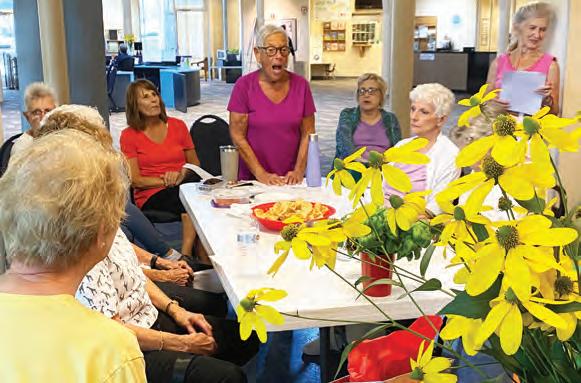

WILL ENJOY:
• Low cost kosher-style grab-and-go lunch
12:30-1:30 pm
Tuesdays, Wednesdays and Thursdays
Beginning Tuesday, February 21
You must register to participate
• Information and referral services
• Wellness programming
• Evidence-based and evidence-informed programs such as HomeMeds, Chronic Disease Management and Aging Mastery series
• Education opportunities in person and hybrid with virtual programming through Virtual Senior Academy
• Social programs and get-togethers
• Volunteer opportunities
Registration begins Tuesday, February 14
FOR MORE INFORMATION, PLEASE CALL 412-278-1975


This is one in a series of articles about Elder Law by Michael
H.
Marks.,
Esq.Michael H. Marks is an elder law attorney with offices in Squirrel Hill and Monroeville. Send questions to michael@marks-law.com or visit www.marks-law.com.

People think that if you’re going into a nursing home, you’re just going to lose it all and there’s nothing you can do. That’s absolutely not true!
The truth is that for a married couple, when one spouse is going into long-term nursing home care while the other is staying home in the community, I can help you save almost everything that you have left (subject to just the cost of implementing the plan). For a single, unmarried person going into a nursing home, I can typically help you save about half of what you still have.

An elder law attorney is the only participant in the system who can help you with proactive, affirmative, creative planning strategies to protect your assets. Here are the details.
If you need expensive long-term care at any level, there are really only three ways to pay for it.
•Paying for yourself on a self-pay, private pay basis in the “spend down” mode;

•Private long-term care insurance, if you had the foresight and opportunity to buy it; or
•Public benefits, primarily Medicaid.
Long term care happens in several different settings or levels of care. To start, you may need long-term care while still at home, or to stay at home. The next level is “assisted living” or a personal care home facility, which offers assistance with activities of daily living. The highest level is (catastrophically expensive) long-term care in a nursing home.
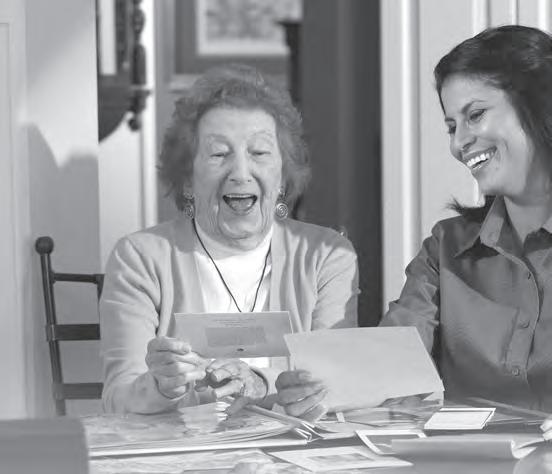
The statewide average cost is now $12,869.59 per month or almost $155,000 per year!

When do Medicare or Medicaid pay for your longterm care? Medicare of course pays for doctors and hospitals and drug plans, and for short-term, temporary care when first admitted to a nursing home or long-term care facility. Neither pay for care in a personal care home or “assisted living.”

Catastrophically expensive nursing home care can wipe away a lifetime’s worth of work and savings pretty quickly. Medicaid benefits can be a lifeline for other family members to survive. Without the right planning techniques, you have to spend almost all of your money before Medicaid starts to pay anything for you.
To be to be eligible for long term care Medicaid in a nursing home, you have to apply and qualify several different ways: first as medically needy, or “nursing facility clinically eligible.” Next, you can’t have too much income (usually not a factor, except when we artificially, temporarily elevate somebody’s income in a planning strategy). You can’t have excess assets (that’s usually both one of the big problems, but also a planning opportunity). And you can’t have made significant gifts in the five years before applying.
When one spouse of a married couple is going into nursing home, we often protect as much money as possible by shifting value to the “community spouse,” the one staying at home and not going into the care facility. We first need to transform the nature and character of those assets, under Medicaid’s rules. We use something called a Medicaid Qualified Spousal Immediate Annuity to do so, by converting assets into income for the stay-at-home spouse (a little too complicated to explain in detail here), and by calculating the optimal amounts to incorporate into the planning transactions.
For a single, unmarried person needing costly longterm care in a nursing home, I can usually help you save about half of whatever is left at that time
with the right planning strategies, using planned, strategic gifting, and a related kind of Medicaid Qualified Immediate Annuity. (Better to save half than having to spend almost all!)
Other strategic asset protection avenues are sometimes available in specific situations, such as: to benefit a disabled person; or a “Caregiver Child” who lived with and cared for an ill parent; or caregivers under a written compensation agreement; or siblings who own a home together.
Note that there’s a broad, ongoing shift toward care and benefits to pay for care at home instead of in an institution. However some of the same strategies we use to protect assets for inpatient nursing home Medicaid benefits are not effective for asset protection for home care situations. Also, a common Revocable Trust or so-called “Living Trust” is not an effective asset protection planning strategy, but a more complex and

sophisticated Irrevocable Asset Protection Trust can be appropriate.

Older partners who are not married often need to evaluate these factors and others in deciding if they will marry or not. There are both pros and cons of marriage related to cost of care and estate planning. Also, Medicare paid hospice care in any setting can be a viable end of life option.
One misconception is that you have to have your plans arranged and that you can’t ever make gifts within five years before needing Medicaid. The bottom line is that for anyone headed toward expensive long-term care, getting the right advice is crucial, and that it’s never too late - or too early - to plan.
At Marks Elder Law, we help people every day with issues like these. I invite your questions and feedback. Please let me know how I can help you and your family.
With the increasing costs of long-term care, having the help of a legal professional when planning for your family’s future can help you make better decisions that can result in keeping more of your money.
We help families understand the strategies, the benefits, and risks involved with elder law, disability and estate planning. www.marks-law.com


William Beaumont School of Medicine.


Family Features



Clearing sidewalks and driveways of snow may be essential to keep from being shut in, but it’s important to use caution when picking up a shovel or starting the snowblower. Research shows many people face an increased risk of a heart attack or sudden cardiac arrest after shoveling heavy snow.
In fact, snow shoveling is among the physical activities that may place extra stress on the heart, especially among people who aren’t used to regular exercise, according to the American Heart Association’s scientific statement, “Exercise-Related Acute Cardiovascular Events and Potential Deleterious Adaptations Following LongTerm Exercise Training: Placing the Risks Into Perspective — an Update.” Numerous other scientific research studies over the years have also identified the dangers of shoveling snow for people with and without previously known heart disease.
“Shoveling a little snow off your sidewalk may not seem like hard work,” said Barry Franklin, Ph.D., FAHA, lead author of the scientific statement, longtime American Heart Association volunteer and a professor of internal medicine at Oakland University
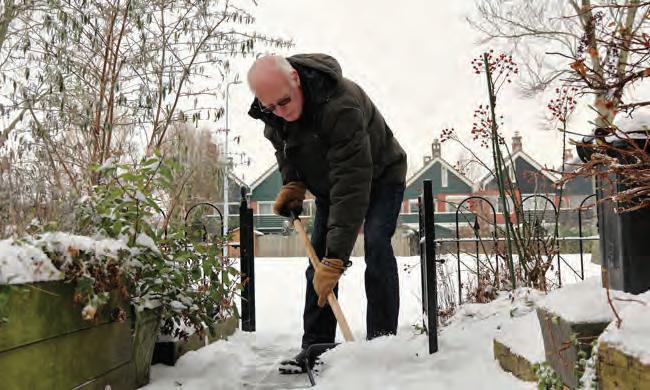



“However, the strain of heavy snow shov eling may be as, or even more, demanding on the heart than taking a treadmill stress test, according to research we’ve conducted. For example, after only two minutes of snow shoveling, study participants’ heart rates exceeded 85% of maximal heart rate, which is a level more commonly expected during intense aerobic exercise testing. The impact is hardest on those who are least fit.”


Franklin said winter weather in general can contribute to increased risks. Cold temperatures may increase blood pressure while simultaneously constricting the coro nary arteries. Those factors, combined with higher heart rate from extra physical effort, may increase the risk for acute cardiac events. There are even studies showing an increased risk for heart attacks among people using snowblowers. Similar to the exertion of pushing a shovel, pushing a snowblower can raise the heart rate and blood pressure quickly.
“The impact of snow removal is especially concerning for people who already have cardiovascular risks like a sedentary lifestyle or obesity; being a current or former smoker; or having diabetes, high cholesterol or high blood pressure; as well as people who have had a heart attack or stroke,” Franklin said. “People with these characteristics


and those who have had bypass surgery or coronary angioplasty simply should not be shoveling snow.”









If you experience chest pain or pressure, lightheadedness, heart palpitations or irregular heart rhythms, stop the activity immediately. Call 911 if symptoms don’t

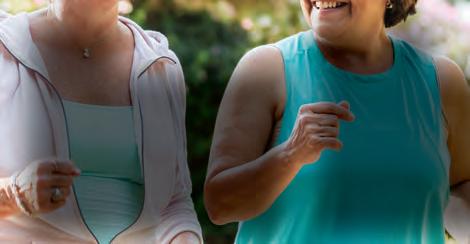

subside shortly after you stop shoveling or snow blowing. If you see someone collapse while shoveling snow, call for help and start Hands-Only CPR if they are unresponsive with no pulse. Learn more about cold weather and cardiovascular health at Heart.org. PJC


















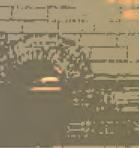



Even more shocking than last month’s massacre outside an East Jerusalem synagogue is that this assault on civilians peacefully praying in a sacred space has been not condemned but celebrated by Palestinians and their purported admirers as far away as Yemen.
There is something deeply broken in a Palestinian street culture that honors violence against innocents, a culture in which some were filmed dancing in the streets and handing out candies after the 9/11 terror attacks. It is this: Multiple generations of Palestinian young people have been taught to hate Jews and Israel’s allies, and to equate attacks on civilians to attacks on military targets.
Too much of the Western world has coddled this perverse cycle. Enough is enough. Palestinians and all those who truly support us must stand for humanity.
There are ominous signs that the forces of cruelty are already on the brink of dragging the Palestinian people and our neighbors through another round of terrible conflict. Last month’s shooting outside the synagogue came a day after an Israeli commando raid on an apartment building in the Jenin refugee camp targeting a Palestinian Islamic Jihad cell that was reportedly on the verge of launching a major terrorist attack.
Israeli forces killed nine people in the raid, including seven men who Israeli and
Palestinian officials said were armed. Militants in Gaza fired rockets at Israel in response. Then came the shooting that killed five men and two women outside the synagogue. Hours later, on Saturday morning, a 13-year-old Palestinian shot and wounded a father and his adult son outside Jerusalem’s Old City.
All humanity should recognize the difference between a preventative assault on a terrorist cell and the massacre of civilians in a house of worship. Yet Palestinian culture has somehow come to tolerate such chilling slaughter. It happened in 1972, after the murder of Israeli athletes at the Munich Olympics, and in 1976, with the plane hijacking to Entebbe, and so many times since.
Palestinians have been used as pawns by surrounding Arab nations that were pursuing a policy of eternal conflict with Israel. Most Arab countries refused citizenship to Palestinian refugees of the 1948 and 1967 wars in Israel, leaving us crowded in squalid camps, to maximize the pitifulness of our plight for the world media.
I should know. I was born in the Old City when it was under Jordanian rule. My family is Muslim, but we lived in the Jewish Quarter. Until 1966, when I was 8, and the Jordanian government forcibly relocated us to the Shuafat Refugee Camp, thus turning me and my family into “refugees.”
One must understand the refugee-ization of the Palestinian people to understand what has perverted our sons’ and daughters’ sense of humanity until they consider a mass shooting an occasion for sweets and dancing.
A Palestinian refugee is not just a refugee for life: Unlike all other refugee populations, the
United Nations has given Palestinian refugees the unique curse of inheritability, so that there are now Palestinian refugees of the fourth and fifth generations.
This is how the number of Palestinians considered refugees registered with the United Nations Relief and Works Agency (UNWRA) ballooned from about 700,000 in 1948 — comparable to the 900,000 Jews who were expelled from Arab and Islamic countries in the same period — to an astonishing 5.6 million today.
UNRWA, which runs schools in the refugee camps, including much of the Gaza Strip, has contributed to the sick street culture with antisemitic education materials that include descriptions of Jews as “ impure” and “inherently treacherous and hostile to Islam and Muslims.” The materials accuse Jews of attempting to murder the Prophet Mohammad and “defiling” the Al-Aqsa Mosque.
Another factor is the lack of leadership and democratic processes in the Palestinian government. The supposed moderate, President Mahmoud Abbas, is now serving the 19th year of a four-year term. Contesting him are Hamas, whose charter covenant calls for Israel’s destruction, and PIJ, an Iranian proxy that rains rockets on Israeli cities.
Speaking of Iran, the country’s Tasnim News, which is considered close to the Islamic Revolutionary Guard Corps, broadcast a glowing account of last month’s synagogue massacre, calling the perpetrator a “martyr” and reporting that Iranian-allied forces in Yemen had “blessed” the attacker. It’s no wonder that the toxic milieu of Palestinian politics has given rise to the ugly Boycott, Divestment,
and Sanctions (BDS) concept, which opposes peace between Israelis and Palestinians and calls instead for the total destruction of the state of Israel.
It’s time to admit that Palestinian institutions are broken, and that they have developmentally harmed generations of Palestinian men and women, boys and girls, by whipping them into a constant froth with violently antisemitic educational and media content that celebrate “martyrdom” attacks against Israelis.
The Palestinian Authority provides a financial incentive for terrorism by providing pensions to the families of those who attack Israelis. Hamas has created a smaller Taliban in its private emirate in Gaza, and Iran’s malign influence is running amok via its puppets at the PIJ.
It took years to fix societies that had been abused by the Nazis, who began to corrupt young people in early childhood with cult-inculcation organizations like the Hitler Youth and Bund Deutscher Mädel, and the similarly militant culture of wartime Japan, which had an equivalent youth-brainwashing organization called the Great Japan Youth Party.
The Palestinian people’s immersion in a culture of violence now spans generations. The corrupt Palestinian institutions must be completely abolished, and an entirely new framework envisioned so that a rising generation can mature and embrace the prospects of peace and prosperity. PJC
Bassem Eid is a Palestinian human rights activist. This story originally appeared in the Forward. To get the Forward’s free email newsletters delivered to your inbox, go to forward.com/newsletter-signup.

ChatGPT, an AI (artificial intelligence) chatbot with remarkable abilities to mimic human language, has been making big news. One stunt that’s gotten a lot of attention is ChatGPT’s alleged ability to write poetry. If true, this would mark a major advance. If an AI app can write real poetry, it has acquired a soul.
Have we crossed that threshold now with ChatGPT? The program is fun and swiftly generates remarkably lifelike responses to queries and prompts, in grammatically correct if somewhat dull and stuffy sentences. Still, the responses are often full of excellent information.
We’ve certainly made progress in building machines that think. The chess program Deep Blue can beat any grandmaster. Given a prompt like, “Draw me Donald Duck in the style of Rembrandt surfing on an ocean of macaroni” an art-generating AI like DALL-E
can produce remarkable illustrations instantly. “Write me a sonnet about e-bicycles in the style of Shakespeare” — presto, ChatGPT can spit out a sonnet.
For many, the difference between these AI-generated products and the real deal is hard to discern — as it was for the congregants of the New York rabbi who delivered a sermon generated by AI last month. If ChatGPT is writing poetry it has passed a most difficult version of the Turing test.
Alan Turing, the early computer scientist who helped crack the Nazis’ Enigma code in World War II, speculated on how to tell if a machine has acquired real intelligence: Can it fool a human being into believing it, too, is human? Imagine yourself exchanging texts with an unseen source hidden behind a screen.
If you can’t tell whether you are conversing with a machine or a person, the computer has passed the Turing test.
But I’ve found a loophole. What if the human judge is devolving at the same rate that AI is advancing? Perhaps people are becoming more like computer programs as computer programs become more human. I often hear people say, “I am multitasking,” or “I need to recharge my batteries.” They are emulating
machines and even a little proud of it. What if ChatGPT seems to be writing poetry because so many people have become so mechanical in their thinking they can’t recognize the poetry of life?
Out of the wounded vanity of a merely human poet, I asked ChatGPT to “write me a poem about kabbalah in the style of Rodger Kamenetz.” Here are the first four lines:
Kabbalah, the ancient wisdom of the Jews
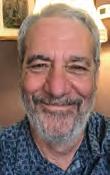
Enshrined in symbols, stories, and the Tree Of Life, a map to guide us through our dues And find the spark of divinity within To those who know and love poetry this isn’t poetry. It is verse — language written in a rough iambic pentameter that has zero felicity.
The verse offers some good clichés about kabbalah because ChatGPT draws instantly from the whole internet. But ChatGPT has no idea what it is saying. It doesn’t care, or have access, to the kind of truths found in poetry. It just cobbles words and phrases together in a plausible way. Since I asked for a poem, it pours the content into a metrical form. But that doesn’t make it beautiful.
In skillful verse, line breaks and end rhymes create variety and emphasis. But what
emphasis is served by rhyming “Jews” and “dues”? What does “dues” even mean in this context — unless it’s a reminder to pay your synagogue dues?
Judging from the response to ChatGPT’s verse, many do think it writes poetry. But that’s where the loophole comes in. The Turing test depends on a human judge. For a judge who has never spent time dwelling on what is beautiful in poetry, ChatGPT has passed the test. But that does not prove that ChatGPT is genuinely creative. It just proves that many people have little interest in poetry, and do not value primary imagination. If I can’t tell whether I am talking to a program or a person, maybe the problem is with me. I pity anyone who can’t distinguish verse written by a bot and a poem by Alicia Ostriker or Gerald Stern. ChatGPT is no more alive than the legendary golem of Prague.
It is said that the Maharal — the great Rabbi Judah Loew of 16th-century Prague — fashioned a magical creature of river mud in order to (what else?) save the Jews. Using permutations of the names of God, the Maharal
Last week, the Chronicle asked its readers in an electronic poll the following question:
“How important is a Jewish day school education?” Of the 199 people who responded, 45% said it is very important; 31% said it is somewhat important; 13% said it is somewhat not important; 7% said it was not at all important; and 4% had no opinion. Comments were submitted by 46 people. A few follow.
If we expect ourselves and our children to value and take our Judaism seriously, and to be proud of our Judaism, there must be enough high-quality Jewish education. Our children need to receive the message from us that our religion is a treasure.
A Jewish day school education is a luxury. Many observant Jews manage to do fine with a public school education and synagogue participation (religious school, Shabbat and holiday attendance, etc.).
Most important is having the option available.
Kamenetz:
Continued from page 14
brought the golem to life by writing “emet” on the creature’s forehead — Hebrew for “truth.”
The legend is rooted in Talmudic discussions of the mystical Book of Formation (Sefer Yetzirah), and further back to Genesis 2:7 which describes a second version of Adam’s creation: “Then the LORD God formed man
I feel that children should learn to respect others’ cultures and beliefs in a learning environment that is more like the real world. They can get their Jewish education from Sunday school and attending synagogue with their own families.
of the dust of the ground, and breathed into his nostrils the breath of life; and man became a living soul.”
Here we see the original transition from matter to life, from a mere golem — a heap of dirt — to an “adam,” a human being. And according to the 2nd-century translator Onkelos, what marks that transition is the human’s ability to speak poetic language.
When Onkelos translates Genesis 2:7, he
The Pittsburgh Jewish Chronicle invites you to join the Chronicle Book Club for its March 5 discussion of “A Play for the End of the World,” by Jai Chakrabarti. The author will join us for the meeting.

The novel was winner of the National Jewish Book Award’s Goldberg Prize for Debut Fiction and longlisted for the 2022 PEN/Faulkner Award.
From Amazon.com: “New York City, 1972. Jaryk Smith, a survivor of the Warsaw Ghetto, and Lucy Gardner, a southerner, newly arrived in the city, are in the first bloom of love when they receive word that Jaryk’s oldest friend has died under mysterious circumstances in a rural village in eastern India.
“Travelling there alone to collect his friend’s ashes, Jaryk soon finds himself enmeshed in the chaos of local politics and efforts to stage a play in protest against the government — the same play that he performed as a child in Warsaw as an act of resistance against the Nazis. Torn between the survivor’s guilt he has carried for decades and his feelings for Lucy, Jaryk must decide how to honor both the past and the present, and how to accept a happiness he is not sure he deserves.”
Your hosts:
Toby Tabachnick, editor of the Chronicle David Rullo, Chronicle staff writer
How and when:
We will meet on Zoom on Sunday, March 5, at noon.
What to do
Buy: “A Play for the End of the World.” It is available at area Barnes & Noble stores and from online retailers, including Amazon and Barnes & Noble. Several copies are available through the Carnegie Library system.
Email: Contact us at drullo@pittsburgh jewishchronicle.org, and write “Chronicle Book Club” in the subject line. We will send you a Zoom link for the discussion meeting.
Happy reading! PJC
With the collapse of religious school participation, it is critical to educate new generations to ensure they know from where they come and to make them literate in Judaism while also having them feel they are a member of the tribe.
I wish I had sent my sons to Jewish day school. They would have been surrounded by other Jews instead of (like me) being in the minority. I think the education would have been better as well; plus, of course, they would have been immersed in our religion. Perhaps they would do more now as adults than just celebrate Chanukah and come to my house for Passover seder.
Jewish day school education for children is more likely to result in kids staying Jewish.
It is important, but most people would want the school to also have topflight secular education. They don’t want to have to choose between a Jewish education and getting their kids into a good college.
renders the Hebrew “nefesh haya” — living soul — as the Aramaic “ruach m’mamila” — a speaking spirit. Poetry is that spirit speaking. Poetry is the utterance of a living soul. And poetry inscribes truth, not on a forehead of mud, but on the human heart. ChatGPT cannot tell — and doesn’t care — whether what it is writing is true or beautiful. But in the best poetry we hear that strong “speaking spirit” — what Wallace
Without day school education we do not have a chance to survive as a Jewish community. Assimilation and intermarriage is too strong to overcome without a good Jewish education.
As a product of the after-school Hebrew school model of the ’60s who hated every moment of it, I can’t overstate the importance I attribute to a Jewish day school education. I lost many years of potential learning and only came to appreciate our rich Jewish history and traditions as an adult. What an amazing thing it is to become proficient in Hebrew and Jewish learning at a stage of one’s life where you can just continue to build on a strong foundation! To know who you are and what that means from an early age is a gift beyond measure. PJC
Toby TabachnickChronicle weekly poll question: Did you agree with President Biden’s State of the Union address? Go to pittsburghjewishchronicle.org to respond. PJC
Stevens called “the voice that is great within us.” Poetry rings true — and makes us more beautifully human. PJC
Rodger Kamenetz wrote “The Jew in the Lotus” and “The History of Last Night’s Dream.” His latest book of poetry is “The Missing Jew: Poems 1976-2022” from Ben Yehuda Press. This story first appeared on JTA.
— LETTERS —
Blaming the Jews for Palestinian terror (“Israel’s critics continue to hold the Jewish state responsible for Palestinian terror,” Feb. 3) is part of a long tradition of blaming Jews for world events and natural phenomena, and as long as we aren’t rounded up and turned into smoke to pay amends, we can handle this blatant antisemitism.
Here is a list of things for which the Jews were blamed, not in chronological order: The Black death, in which half of Europe was wiped out; slavery; the Russian Revolution and communism; WW I and WW II; the Great Depression; 9/11; blamed by whites for replacing the white race with Black people; blamed by Black people for being white oppressors. We can’t win this one.
And as crazy as these are, here are some really off-the-wall accusations: Russians accused Jews of hiding a magic vegetable that keeps you from getting drunk; Hitler thought modern art was a Jewish plot to crush the German spirit; 13th-century, medieval Catholics accused Jews of torturing bread; Henry Ford accused Jews of making candy taste bad; when a shark attacked tourists in Egypt, an Egyptian governor accused Jews of attacking them with remote-controlled sharks; Wahhabis accused Jews of conspiring with Jew trees; a Palestinian newspaper accused Jews of breeding killer super rats; and Iraqi security thought Pokémon was part of a Zionist plot.
It doesn’t matter how we behave or what we say; we will be blamed. The Palestinians are particularly adept at this blame the Jew game and, regrettably, there are lots of people hardwired to hate us who go along with their crazy fabrications.
Larry Shapiro Calgary, AlbertaWe invite you to submit letters for publication. Letters must include name, address and daytime phone number; addresses and phone numbers will not be published. Letters may not exceed 500 words and may be edited for length and clarity; they cannot be returned. Mail or email letters to: Letters to the editor via email: letters@pittsburghjewishchronicle.org
Address: Pittsburgh Jewish Chronicle 5915 Beacon St., 5th Flr., Pittsburgh, PA 15217
Website address: pittsburghjewishchronicle.org/letters-to-the-editor
Toby TabachnickSummit:
thereby depriving Palestinians.
Continued from page 1
government refused to investigate it” and that Israel claimed it “had nothing to do with it.”
In fact, the Israeli government, with oversight by the U.S. Security Coordinator, did investigate Abu Akleh’s death, concluding that it was likely she was unintentionally shot by an Israeli soldier but not deliberately targeted. In November, the FBI launched a probe of the killing. Such an independent investigation is a rare undertaking for the FBI, especially when it involves an ally of the U.S. that is recognized as having a credible judiciary, such as Israel. Israel has said it would not cooperate with the FBI investigation.
Ross, De Niece Welch and John Welch, who recently returned from the West Bank along with a group of students from the Pittsburgh Theological Seminary, spoke of alleged atrocities committed by Israel, which they frequently referred to as an “apartheid” state, including “nightly” raids on Palestinians and the “kidnapping” of Palestinian children from their homes.
R oss urged his audience to boycott Israeli products and to ask elected officials to sanction Israel.
De Neice Welch equated the treatment of Palestinians in Israel with racism in the U.S. John Welch equated the Israeli “narrative” with “white Christian nationalism.” He also accused Israel of “hoarding” the water supply,
Israel:
Continued from page 1
desert: If you don’t show strength and muscle, you will be run over. Israel has to come to peace through strength, not weakness.”
Meir Aridor left Israel in the early 1990s for the United States. He believes the idea of peace through strength is an illusion and thinks that Netanyahu has spent the last quarter-century working to ensure a two-state solution will not happen.
“The people who say out loud that we should annex the West Bank now in the government are the most powerful partners of Netanyahu,” Aridor said.
The new coalition, he said, believes if Israel annexes land and builds settlements, Palestinians in the territories will leave or be pushed to other areas.
“For the last month, the Netanyahu government has pushed as much as it can to destabilize the Palestinian Authority,” he said, adding that the result will be an ungovernable area.
“If we push it to the brink, no army in the world can save us,” he said.
Aridor believes the Supreme Court has complicated the plans of the government.
Those living in the West Bank, he said, have access to the court, something that the coalition wants to eliminate. Once that is changed, he said, the bloc will have the ability to make any change it desires, especially since the
Harris:
Bamyeh advocated for cultural, economic, academic and sports boycotts of Israel, likening the Jewish state to apartheid South Africa. He stressed that condemnation of Israel shouldn’t be “confused” with antisemitism.
While he acknowledged that Jews are part of the “historical fabric of the Middle East,” he said Israel “is not an expression of where the Jewish history should have led.”
Israelis use the Holocaust, he said, “not as a human tragedy, not as a crime against humanity simply, but specifically for a justification for… violence against the Palestinian population.”
Throughout the session, there was no mention of the Arab rejection of the 1948 Partition Plan or any of the proposed peace agreements over the decades that would have led to an independent Palestinian state or any act of Palestinian terrorism. There was no mention of the resulting violence that ensued from Gaza after Israel relinquished its control there.
Anti-Israel workshops have been presented at the Racial Justice Summit since at least 2017, with speakers sometimes veering into antisemitic rhetoric.
The Community Relations Council of the Jewish Federation of Greater Pittsburgh has attempted to convince the summit’s leadership to include a mainstream Jewish voice in its sessions about Israel, but hasn’t succeeded, according to CRC Director Laura Cherner.
country has no written constitution.
Netanyahu, Aridor said, believes he has found a magic solution to the Palestinian conflict: signing peace treaties with the surrounding Arab countries it. This, he said, is folly because “they don’t want the Palestinians either.”
Israeli Abby Schachter has lived in the United States for nearly three decades. Netanyahu’s establishment of peace agreements with Israel’s neighbors is a fulfillment of campaign promises he and the Likud party made to the Israeli people, she said.
It’s remarkable, she said, that the prime minister and his governing partners are working to keep the promises they made during the campaign.
“It’s very unusual for democratically elected officials, especially leaders, to do exactly what they said they would do when they get elected, but they’ve done that, and I think it’s an incredible feat,” she said.
Another campaign promise made by multiple parties, she said, was reform of the Supreme Court and the judiciary.
“Nobody is arguing that nothing should be changed,” she said. “I don’t know that you could find a single reasonable person that said the Supreme Court, that the judiciary, doesn’t need to be changed.”
Even those who oppose what the government is doing, she said, agree that the judiciary must be reformed.
Schachter said no Western democracies
us going forward.
“We’ve been having tensions over the last several years,” she said. “I think that it came to a head in 2019, and nothing really has changed in terms of it being a good environment for us to participate.”
During the 2019 Racial Justice Summit, a panel member “engaged in antisemitic tropes and actually shouted at a Jewish woman who was an audience participant,” Cherner said.
Cherner participated in the summit’s planning committee for several months following that incident.
“We tried over the years to engage with the summit, to make sure that a mainstream Jewish voice was present, and explain why we had a problem with some of the speakers and the content that they were choosing to platform,” she said. “It is clear that our perspective is not welcome.”
Cherner stressed that the CRC does not want to suppress Palestinian perspectives.
“We’re not saying that Palestinian voices shouldn’t be heard and we’re not trying to suppress any conversation about Palestinian rights,” she said. “What we’re trying to do is advocate for the community. When the Jewish community comes to you and says, ‘This is antisemitic,’ we hope that our allies and partners would take that seriously and listen to a marginalized community that is coming to you to express why rhetoric or a speaker is harmful to that community.”
look like Israel in terms of the power of the judiciary over the executive and legislative branches.
And while she believes that reasonable people can hold differing opinions about issues like the Supreme Court, she doesn’t think all the rhetoric used during the campaign was that of reasonable people.
“I was in Israel in October, and I can tell you that the slogans I saw at election rallies in Tel Aviv included wishing death on Bibi Netanyahu,” she said. “Those calls for his death have just increased. I would say that is a serious problem, too, and a threat to democracy in Israel.”
All Zionists, she said, should oppose using violence as a tool against duly elected officials.
Like Sofayov, Schachter believes the left has misrepresented the political situation in Israel. In both Israel and America, she said, the left uses “scare tactics” to frighten people into believing things that aren’t true.
“It’s what the left does instead of debating, instead of reasoning, instead of saying, ‘I have a better way of solving the problem,’” she said.
Maya Haber left Israel in 2000 when she was 26. Potential changes to the judiciary worry her.
“We can have an argument about reforms needed,” she said, but “they’re making the judiciary political, which, in my opinion, works here only because you have a jury system.”
Haber said she is terrified by what has already happened since December.
Linking Israel to the killing of the activist in Atlanta is an example of that harmful rhetoric, Cherner said.
“The ‘Deadly Exchange’ — basically, blaming Israel for police brutality or racism in the United States — is completely not based in fact, and rewriting the history of racism in this country to place the blame on Israel is completely ridiculous,” she said. “It moves the blame from our own systems and tries to project it onto the Jewish state.”
While the Racial Justice Summit offers “a lot of good information that can be shared,” Cherner added, “ultimately the hostile environment really clouds that good information.”
The Jewish Federation of Greater Pittsburgh ceased publicly partnering with the Pittsburgh Theological Seminary in May 2018, following its hosting of a lecture by the Rev. Naim Ateek, founder of the Sabeel Ecumenical Liberation Theology Center in Jerusalem. The Federation had expressed concerns with the antisemitic rhetoric commonly used by Ateek and the one-sided, anti-Israel philosophy embedded within the theology he advocates. The seminary leadership was dismissive of Federation concerns, Josh Sayles, then-director of the CRC said at the time. PJC
Toby Tabachnick can be reached at ttabachnick@pittsburghjewishchronicle.org.
“I don’t recognize my country,” she said.
It’s not simply changes to the Supreme Court that concern Haber. She said that legal counsel to the various ministries now have to be political appointees, which might include trusted personal lawyers.
Democracy, she said, is already challenged in Israel because of the close relationship between the executive and legislative bodies; the proposed changes make it more precarious.
“There is no legislation divorced from the government structure,” she said. “The coalition decides on legislation and controls the government. There is only one check and balance, which is the courts. Take that out, and see what happens.”
Haber argued, though, that just the threat of change has been enough to alter Israeli society.
“I have a friend with a teenage kid that wants to come out as gay,” she said. “My friend is saying, ‘I support you; I love you; I accept you. Don’t come out.’”
Whether or not he agrees with its policies, Aridor believes that after a period of political tumult, the new governing bloc is here to stay.
“This is a coalition of people who have common interests,” he said. “They’re not going to give it up for some political fights. They know exactly what they have.” PJC
David Rullo can be reached at drullo@ pittsburghjewishchronicle.org.
Continued from page 3
learning going back literally thousands of years — learning and studying and teaching these things can actually help us understand our lives and our place in the world, and help
“We have to understand that we not only experienced this trauma individually, but we experienced it collectively. I want people to know that it’s a good thing to come together collectively, to support each other and to be supported ourselves,” he continued.
“I hope that folks will take this opportunity
to be together. I promise I’ll do the best I can to help people understand what’s coming. The legal system is, you know, opaque to most people. It’s a black box. There’s a lot of weird terminology. We’ll break it all down. We’ll make it understandable to everybody so that we can all know how to understand the events
ahead for us collectively.” PJC
U.S. Law and Criminal Justice will meet on Feb. 15 and 22 from 6:30-8 p.m. at the 10.27 Healing Partnership and online. Registration is required.
Adam Reinherz can be reached at areinherz@pittsburghjewishchronicle.org.


Israeli Literature as a Window to Israeli Society
FEB. 7–MAY 2, 2023
TUESDAYS 9:30-10:30 AM
10 SESSIONS ON ZOOM
Sacks: To Heal a Fractured World
FEB. 22-MAY 17, 2023
WEDNESDAYS 9:30–10:30 AM
10 SESSIONS ON ZOOM
Is Judaism Compatible With Democracy?
MAR 23–APR. 27, 2023
THURSDAYS 9:30–10:30 AM
4 SESSIONS IN PERSON
Miracles— A Jewish Perspective


APR. 9–30, 2023
SUNDAYS 10:00-11:00 AM
4 SESSIONS ON ZOOM
The Jewish Text Puzzle
APR. 10–MAY 22, 2023
SUNDAYS 7:00-8:00 PM
6 SESSIONS IN PERSON
Co-sponsored and offered in conjunction with Rodef Shalom Congregation
QUESTIONS?
learning@jfedpgh.org or 412.681.8000

Underwritten by the Alan Papernick Educational Institute Endowment Fund

MAR 9
PROHIBITED MARRIAGE: STILL RELEVANT OR THOROUGHLY OUTDATED?
MAY 4
RANSOMING CAPTIVES: A VEXING LEGAL DILEMMA
THURSDAYS 8:30-10:45 AM ON ZOOM GET UP TO 6 CLE OR CEU CREDITS! WITH CREDIT: $35 per class | WITHOUT CREDIT: $30 per class
REGISTER TODAY:
jewishpgh.org/explore/federation-learning OR SCAN QR CODE ->

JUNE 29
PLAGIARISM IN THE INTERNET AGE
Full inclusion is a core value of Jewish Pittsburgh. The Jewish Federation welcomes people of all backgrounds, races, religious affiliations, sexual orientations and gender expressions. The cost of taking a course is never a barrier to participation. If price is an issue, or if you need accommodation for a disability, please contact Cheryl Johnson at learning@jfedpgh.org or 412.681.8000 so that we can make the course accessible for you.
Generously supported by the Elaine Belle Krasik Fund for Adult Education
Lillian Rafson and Kenny Gould of Pittsburgh are thrilled to announce their engagement. Lillian is the daughter of Roger Rafson and Sally Garfield Rafson of Pittsburgh, and Kenny is the son of Wayne and Amy Gould of Vero Beach, Florida (formerly of Mt. Lebanon). Both Lillian and Kenny are entrepreneurs: Lillian is the founder and CEO of surprise travel agency Pack Up + Go. Kenny was the founder of the craft beer magazine Hop Culture and is currently the director of strategic sales at Untappd and host of Next Exit on YouTube.

What is a special occasion…a birth, a b’nai mitzvah, an engagement, a wedding, an anniversary?
Absolutely!
What is a special occasion…a birth, a b’nai mitzvah, an engagement, a wedding, an anniversary?






Absolutely!
But so is a birthday, a graduation, an athletic victory, an academic achievement…anything that deserves special recognition.
But so is a birthday, a graduation, an athletic victory, an academic achievement…anything that deserves special recognition.
The more you celebrate in life… the more there is in life to celebrate!
SEND YOUR CELEBRATIONS, MAZEL TOVS, AND PHOTOS TO: announcements@pittsburghjewishchronicle.org
SEND YOUR CELEBRATIONS, MAZEL TOVS, AND PHOTOS TO: announcements@pittsburghjewishchronicle.org



Growing up, my family regularly traveled to Washington D.C. We attended inaugurations, went on lobbying missions, celebrated at Chanukah parties and did some sightseeing. Over the years, one comment that my father shared numerous times stands out in my memory. We would look at the monuments to the Founding Fathers, and he would say that one monument is missing. Alexander Hamilton has no monument.
flame, the Earth shook, God spoke directly to His people and presented them with the Law that would change them and the course of human history? Ramban argues that this proves that Yitro arrived before the Torah was given. Otherwise, Moshe would have included that in his recounting, too. Ramban, however, waives away this question with the following suggestion.
The Torah does not list that Moshe recounted the giving of the Torah because it goes without saying. Obviously, Moshe shared that event. He regaled Yitro with descriptions of the flowers that miraculously bloomed on the barren hillside, how the birds had been silent and the universe
My father’s explanation was always the same: “All of Washington, D.C., is a monument to Hamilton.” It was Hamilton who developed the centralized structure of the federal government and set up its institutions as Washington’s treasury secretary. So, Hamilton does not need a monument.
Yitro, the namesake of this week’s parsha, comes to join his son-in-law Moshe. Yitro’s arrival is sudden, and a date is not given in the Torah. This leads to ambiguity, and the timeline is unclear. Did Yitro join before the Torah is given or after? The Torah is given less than two months after the Exodus, so it is possible that Yitro would not have made it in time. Rabbis and commentators from the Talmud to today search for textual clues to shed light on this question.
The Ramban, Nachmanides, the 13th-century leader, scholar and kabbalist, offers a systematic investigation of this question and cites verses from throughout Tanach to attempt to identify the chronology. One suggested proof revolves around a brief conversation between Moshe and Yitro. In our parsha, Moshe excitedly recounts to Yitro, who had just arrived, God’s great miracles that completely changed and elevated the Jewish people. He shared “all that God had done to Pharoh and to Egypt to protect the Jewish People, and all the events that occurred on the journey” (Exodus 18:8) when the Jewish people were saved at the Reed Sea and from the attack of Amalek. Notably missing are the sui generis events of the giving of the Torah.
How could Moshe leave out from the account how Mount Sinai had blazed with
itself shook as God uttered his first words to the Jews as a people. All the highlights and details of the experience were explained to Yitro, who probably sat with his mouth agape, overwhelmed by the magnificence of the events. It is not mentioned in our narrative because readers understand this on their own. It need not be stated, just like Hamilton needs no monument in the city he fostered.
The idea that something is so evident that it transcends enumeration is powerful. The giving of the Torah was one such idea, but only for that time. Today, and forever, we are required to constantly recall that foundation of Judaism: that God created the world, that God directs history and gave the Jewish people the Torah. What is blatantly obvious in one moment needs consistent promotion over time.
This passing conversation between Yitro and Moshe needs to be seen both for what it includes and for what it leaves aside. We need to actively identify the ideas that are so important that we feel they do not require mention. This exercise helps us understand who we are and how we present ourselves. It also should remind us that even if it is clear to us now, it may not be clear to everyone or forever. We must then dedicate energy to ensure that those ideals find some active voice, so that they can be recognized and preserved for the future. PJC
Rabbi Yitzi Genack is the rabbi of Shaare Torah Congregation. This column is a service of the Vaad Harabanim of Greater Pittsburgh.

Today, and forever, we are required to constantly recall that foundation of Judaism: that God created the world, that God directs history and gave the Jewish people the Torah.
The more you celebrate in life… the more there is in life to celebrate!

















CUBAN: Natalie Cuban, on Tuesday, Jan. 31, 2023. Natalie passed away peacefully at her home. Natalie was 98 years old. She is survived by her son, Joel Cuban; son-in-law, Thomas Tysarczyk; grandchildren, Stacye Walsh, Jodi Tysarczyk, Melissa Cuban, Jason Cuban; and great-grandchildren, Gabby and Olivia. She was preceded in death by her husband, Martin Cuban; daughter, Sharon Tysarczyk; and her sister Norma Sigal, as well as her parents, Sylvia and Jack Simon. Natalie was an exceptional cook, a talented golfer and enjoyed playing cards. She valued her volunteer work at the Hillman Cancer Center where she would often be seen giving out hand-knitted hats and lap afghans. Taking care of her family was at the center of her life but her love extended to many other family friends. Graveside service and interment were held at Beth Shalom Cemetery. Contributions may be made to the Hillman Cancer Center, 5115 Centre Avenue, Pittsburgh, PA 15232. Arrangements entrusted to RALPH SCHUGAR CHAPEL, INC., family owned and operated. schugar.com
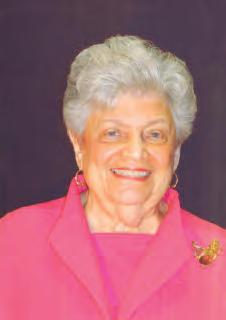

KAVALER: On Sunday, Jan. 29, at 94, Mina Kavaler took her final retirement at Houston Methodist Hospital in Texas. A consummate worker, doer and people-person, Mina loved a challenge. She never turned away from a cause or situation she believed she could make better and worked tirelessly to improve people’s lives. An (almost) lifelong Pittsburgher, Mina was born on Oct. 16, 1928, in Oakland to Jack and Faye Serbin. As a child of the Depression with a father who owned a candy factory, Mina learned never to waste a dollar and, as anyone who ever visited her Squirrel Hill home knew, had a love affair with strategically placed bowls of candy. With a mother who played cards at night for a living and a working father, Mina was the elder sibling and surrogate parent to her younger brother Harvey, whom she loved fiercely throughout his life. Mina was a proud graduate of Schenley High School and the Pittsburgh Public School system. It was here that the direction of her life was established. She fell in love with learning and teaching, most notably as Andy Warhol’s math tutor, and became a career teacher of math in the Pittsburgh public school system. Schenley High School had students from every walk of life, which ignited her passion for social justice, a calling that led her to be the first white woman on Pittsburgh’s NAACP board and walk in marches supporting equal rights with Dr. Martin Luther King Jr. and others. Mina met the love of her life, Vigdor Kavaler, at Pitt, beginning an almost 50-year marriage full of friends, family and travel. At Pitt, she was president of her sorority, Alpha Epsilon Phi, and a massive supporter of all Pitt sports, keeping score at the basketball games and attending every Pitt football game. It was at Pitt that she met many of her closest friends. These friendships lasted her lifetime; from the group who had season tickets to Pitt football to the poker club crowd to her travel friends, Mina loved them all. Being Mina’s friend meant you were always available for a marathon late-night phone call and a “let’s go” attitude. Armed with a master’s in teaching from Adelphi University, Mina began a decades-long career teaching math in some of Pittsburgh’s most challenging neighborhoods. Mina was motivated by the diamond in the rough, the student she could inspire to learn. Twenty-five years after he graduated from Reizenstein High School, she was thrilled to visit her student Billy Porter backstage on the set of Kinky Boots on Broadway. Of course, when Mina left Reizenstein, she retained a core group of teacher friends. Mina’s teaching didn’t end with the school day. If you grew up in Squirrel Hill in the 1960s and 1970s, chances are you sat in Mina’s kitchen after school getting tutored for the SATs. Many a college career began at Mina’s kitchen table. Family, religion and travel were hugely important for Mina, with family coming first. The best day of Mina and Vig’s life was when they adopted John (JD) and Marti through the Jewish Family and Children’s Services. They were the lights in her life. She was a loving, devoted mother and worked diligently to provide her children with everything they could want and need, including a well-rounded education as school students and, through travel, citizens of the world. Even as children, Marti and John supported Mina’s many volunteer efforts and learned the value of community service. They sealed envelopes for friends’ political campaigns, worked the polls at 6 a.m. during elections and sorted clothing at Anathon House. Mina excelled in every aspect of volunteering, but her sweet spot was fundraising. If you got a fundraising call from Mina, you didn’t get off the phone until you gave — probably more than last year. Mina’s labor of love was Rodef Shalom Congregation. She was an institution in the Rodef Shalom community supporting Vig’s work as a long-term president of Sisterhood, chairing many committees and teaching Sunday school. In later years, she even sang in the choir. If you were a member of Rodef Shalom, you knew Mina. Every Passover was spent sitting on the dais, drinking Vig’s excellent wine collection. Marti and JD were bar mitzvah at Rodef Shalom, Marti married in the sanctuary, and Mina celebrated her 90th birthday weekend with friends and family from all over the country. If Mina was having a life event, it was happening at Rodef. And then there was travel. Vig and Mina visited every continent except Antarctica and almost every country on our planet. When Nixon opened China, they were among the first visitors. They loved exploring different cultures. Never an adventurous eater, Mina traveled with a suitcase full of cheese peanut butter crackers while Vig indulged in every cuisine. Travel wasn’t only international. Every summer, the exodus from Squirrel Hill to Beach Haven on the Jersey shore began. Mina cherished spending summers with her children and friends, enjoying the beach and many fun group activities. The Jersey
Please see Obituaries, page 20

Jewish Association on Aging gratefully acknowledges contributions from the following:

Marc Darling & Susan Denmark
Marc Darling & Susan Denmark
Edward M. Goldston.
Contact






James H. Darling
Anne M. Darling
Sunday February 12: Rose Avner, Jacob E. Canter, Gerald Lee Goldman, Lena Gutkind, Aaron Hirschman, Irving Krasnopoler, Samuel Pasekoff, Edward Schultz, Bella M. Sherman, Isaac Wolovitz, Oscar Zeidenstein
Monday February 13: Mary Americus, Phillip Caplan, David Cohen, A. L. Davidson, Sara R. Kitay, Miriam F. Kopelson, William M. Lowenstein, Melvin Morgan, Esther Phillips, Abraham Ripp, Sylvia Rosen, Pauline Salkovitz, Milton Sapir, Benjamin Silberman, Abraham Silverberg, Frances Simon, Jacob I. Slotsky, Norman Stern, Wilma J. Tumpson, Herman Weisberger, Harry A. Wilkofsky, Rose Zwick
Tuesday February 14: Irwin Alper, Dorothy Buckdrucker Lewinter, Harry N. Cohen, Jacob Gerber, Harry Glick, Belle Green, Joseph Hirsh, Benjamin Horvitz, Vivian S. Hyman, Hyman Koss, Sarah Liebman, Eli London, Abe Markowitz, Esther Rice, Sophie Rosen, Cele Rosman, Jack Weber, Anna Witt
Wednesday February 15: Ida S. Barron Hochberg, Morris Marvin Berger, Max Coffee, Frieda Feinberg, Reuben Goldstein, Rose Goldstein, George Kalb, Rae G. Labovitz, Bertha Lieber, Meyer Maglin, Anna Myers, Lillian W. Rothman, Benjamin Sachs, Sara Stuart, Jacob D. Titlebaum, Tillie T. Udman, Eli G. Weinthal, Fannie Williams
Thursday February 16: Leonard Chasick, Israel Fineman, Harry Frank, Rachel Goodman, Lena Gordon, Louis Kantor, Esther Lehman, Freda Levine, Sarah Lurie, Herman Ryave, Rose Schwartz, Anna E. Shapiro, Tillie Shillit, Samuel Toker, Jack Wagner, Jeffrey S. Weiss, Sylvia Wittlin
Friday February 17: Isaac Apple, Fannie Binstock, Morton Blumenfeld, Alfred Devon, Josephine Handmaker Feldman, Reva Hankin, Albert F. Klein, Joseph G. Lazear, Moishe Ofshinski, Serrae Roberts, Ben Simon, Louise S. Sobel, Ida J. Wilner, John Wirtzman, Annette Wolk
Saturday February 18: Anna Friedman, Louis Friedman, O. Hicks Friedman, Fanny Gitelman, Jack Morris Glantz, Ann R. Hendel, Milton B. Krupp, Joseph Lewinter, Celia Lipsitz, William Mintz, Ruth Brill Moldovan, Celia Rofey, David M. Rosenberg, Samuel Earl Schugar, Rose Sherry, Bennie Silverman, Henry Singer, Tillie Tex

Obituaries:
Continued from page 19
shore crew took relaxing seriously. After 32 years of teaching, she retired and began her second career. She spent the next 24 years as “mayor” of Weinberg Terrace. Weinberg Terrace put Mina at the epicenter of Squirrel Hill’s older Jewish population. She knew each resident’s family personally. Handling the desk with warmth and kindness, she ran Weinberg Terrace like she ran her life, efficiently and with a sense of humor. Never one to shy away from a challenge, Mina made many improvements to the lives of the residents. And she never missed a day of work. During the pandemic and armed with a mask to match every outfit, she drove herself to work and ensured residents had their menus on time and scheduled activities. She often did double shifts to ensure the residents were taken care of. So, at 93, Mina decided it was time for a change. She retired from Weinberg Terrace and left her beloved Pittsburgh for the greener pastures of Texas. Mina moved to The Tradition and, as an expert on assisted living facilities, quickly formed a resident’s council and was awarded the first Resident of the Month honor. In her year of living close to JD and Kelly, she made great friends and spent time with her Texas extended family, Jeanene Rutkowski and Brandan White. She looked forward to holiday celebrations in San Antonio with Laurie, Sean, Hailey and Brooke Burgess. At JD and Kelly’s ranch in Round Top, Texas, Mina quickly endeared herself to the locals. During her time in Texas, she had many visits from her beloved grandchildren, Jack, Kat, and dear friend Janice Rosenberg. Throughout her life, there were too many awards and recognitions to mention and hundreds more stories to tell. Her surviving family — John and Kelly Kavaler, Marti and Barry Fischer, grandchildren Jack and Kat Fischer and fiancé Garrett Snyder would love to hear your Mina stories. Services were at Ralph Schugar Chapel, Inc., Feb. 5, 2023. Vigdor has been waiting patiently and Mina will be laid beside him at West View Cemetery of Rodef Shalom Congregation. She will undoubtedly regale him with tales of all of her adventures, and together they will look down on granddaughter Kat’s wedding in the fall of 2024. Learner, teacher, volunteer. If you would like to honor Mina’s memory, please support the Vigdor W. Kavaler Scholarship Fund through Rodef Shalom Congregation. The fund awards college scholarships to Jewish students. Mina would love that. schugar.com
LEBOVITZ: Lois Lebovitz, on Tuesday, Jan. 31, 2023; wife of the late Joseph Lebovitz passed away surrounded by her loving family. Loving mother of Ruth Lebovitz (Dan Meyer), Amy Lanteri (Paul), Stuart Lebovitz (Julie), and Sheila Wright. Loving grandmother of Zachary, Sarah and Max Meyer, Lindsay and Andrew Lanteri, Joshua, Jordan, Becky and Danny Lebovitz, Olivia and Oliver Wright and five great-grandchildren. Lois was firstly the strong
matriarch of her family. The thing she enjoyed most was being with them, whether it was in her dining room or at the beach. She loved large gatherings. Everyone was welcome and no one ever left her home without some kind of package. Her apple pie was famous. She loved a good NYT crossword puzzle, a challenging bridge game and was an avid reader and a compulsive CNN watcher. She had strong opinions and was not shy about sharing them with anybody. She always had a positive outlook on life which served her well over her six-year battle with cancer. Her care team at Hillman Cancer Center and Bridges Hospice will always be remembered for their exceptional care and compassion for her and her family. Graveside service and interment will be held on Friday, Feb. 3, 2023 at 11 a.m. at West View Cemetery of Rodef Shalom Congregation. Contributions may be made to The Michael J. Fox Foundation, PO Box 5014, Hagerstown, MD 21741, MS Society, 1501 Reedsdale Street, Suite 105, Pittsburgh, PA 15233, Jewish National Fund, 6425 Living Place, Suite 200, Pittsburgh, PA 15206, or a charity of the donor’s choice. Arrangements entrusted to Ralph Schugar Chapel, Inc., family owned and operated. schugar.com
ROSNER: Irene Cichocki Rosner, age 93, of Greenfield, passed away in her home Friday, Feb. 3, 2023. Beloved wife of 70 years to the late Eugene, mother of Candi (Stuart) Shapiro of Oil City, grandmother of Justin and Robert of Pittsburgh and Brandon of Washington, D. C., aunt of Alina Green of Pittsburgh and Elizabeth DeSantis of Florida. Her family would like to thank Bernadette Lovett, Karmen Griffin, Jeanine Clay, Tracy Pennix and Theresa Germany for the care and kindness they provided as her caregivers. Born in Warsaw, Poland, in 1929, she fled what would become the Warsaw Ghetto at 10 years old and spent the Holocaust in hiding and on the run using false documents that provided her a non-Jewish name. After World War II, she emigrated to Pittsburgh and graduated from Taylor Allderdice High School before marrying fellow Holocaust survivor Eugene in 1950, with whom she ran Gene’s Food Market in South Oakland at Kennett Square and Ophelia Street. Services were held at Ralph Schugar Chapel, Inc. Entombment Beth Shalom Cemetery. schugar.com PJC


SECURE 2.0 improves Roth retirement options, including allowing employer matching contributions direct to a Roth retirement plan and delays Required
Minimum Distributions (RMDs) for many
On December 29, 2022, President Biden signed into law the SECURE 2.0. The law contains significant changes to employer-provided retirement plans and individual retirement plans. It provides significant savings enhancements for retirement planning and allows for increased Roth contributions and conversion opportunities including:
• Match and non-elective contributions can now be Roth Roth SIMPLE and SEP IRAs
• Student loan matching contributions permitted
• No more Roth 401(k) RMDs
I have long been a proponent of Roth IRAs and SECURE 2.0 will allow many more Roth saving options. The Roth IRA (or work Roth retirement plan) is superior to the deductible IRA (or work traditional retirement plan). And depending on the investment period and your current and future tax brackets, the Roth IRA will often provide more purchasing power than a traditional deductible IRA.
The first huge change for people who are still working is that employers will now be able to provide employees with the option to receive matching and nonelective contributions to a Roth account for their 401(k)/403(b)/457(b) plans. Under prior law, all
by James Lange,CPA/Attorneyemployer contributions had to be deposited to a traditional account (pre-tax), not aRoth employees could choose a Roth account for their contribution, but the employer could not.
This is an optional provision for employers. Employers must change their plan documents to provide this option, but they are not required to do so. One of the purposes of this article is to not only educate employees, but also to encourage all employers, both in the for profit and not for profit worlds, to amend their plans immediately.
In most cases, every month employers delay amending their plan, it is hurting their employees. Plan documents without this vital plan amendment will limit valuable options for employees to save for their retirement in the most effective manner.
All taxes on Roth contributions will be the employee’s responsibility and the match will be immediately vested. Almost all younger workers should take advantage of this provision and most mid and even some late-career employees should too.
It is understood that if your employer offers matching contributions for your retirement plan, you should contribute at least the amount necessary to receive the full amount that the employer is willing to match. Both under the old law and under the new law, the employee’s contribution can be to a Roth or a traditional account.
After you pay the taxes on a Roth matching contribution, it will grow income-tax free with no taxes
John Montoya,Esq.due when the money is withdrawn. Traditional contributions will be made on a pre-tax basis, and taxes will be owed when the money is withdrawn.
The employer match provides an immediate positive return on your investment and is the easiest way to maximize your retirement savings. It is a winwin scenario.
For employees who want to contribute the most possible, allow me to frame the “Roth versus a traditional contribution” scenarios. Let’s assume the employer has a 50% match policy and the employee contributes $30,000 per year in 2023 ($22,500 maximum plus the $7,500 catch up if age 50 or older).
The employer’s contribution would be $15,000. If the employer’s contribution goes to the traditional portion of the plan, the employee, in effect, receives $10,000 in immediate purchasing power because of the 33% income tax liability when the funds are withdrawn. If the employer’s share goes to the Roth, then the employee is receiving $15,000. The employee will need to pay the tax on the contribution he can’t deduct the contribution but in effect, the contribution is $5,000 higher when measured in purchasing power, not including the income-tax free growth on the contribution.
Starting in 2024, SECURE 2.0 aligns employersponsored Roth plans with Roth IRAs and now the employer plans will also be exempt from the RMD requirements (just as Roth IRAs are) while the participant is alive. This avoids the extra effort and has-
sle of rolling over a 401(k) or 403(b) to a Roth IRA just to avoid the RMD. The process will be much simpler and not force an employee out of an employer plan who otherwise may want to remain.
Increased Age for RMDs (and Additional Time for Roth Planning)
Currently, the age for RMDs is 72. Under SECURE 2.0, the ages for RMDs change again:
• Born before 1950, RMDs started at age 70½
• Born in 1950, RMDs start at age 72
• Born between 1951–1959, RMDs start at age 73
• Born in 1960 or later, RMDs start at age 75
The important part about the increased age for RMDs from a Roth conversion standpoint, is obviously there will be a longer window to make lower cost Roth IRA conversions.
In conclusion, employers please update your documents to better serve your employees. For people still working, when your employer does offer the Roth option for the employer portion, strongly consider taking advantage of it.
To learn more about tax-saving opportunities with SECURE 2.0, register to attend our free educational February 21,2023 webinars at https://PayTaxes Later.com/Webinars



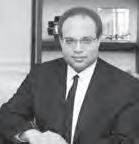






721 53rd Street











A stunning Lawrenceville home o ers 4 levels of luxurious finishes and unparalleled city views. The dazzling hardwood floors and an open-concept layout make living and entertaining easy. The kitchen is a chef’s paradise with stainless steel appliances, Glacier White Quartz countertops, a large island with seating, and crisp white kitchen cabinets elevated with a pop of color from the handmade backsplash tiles and mosaic inlays. Three spacious bedrooms, 3.5 contemporary-styled baths, and thoughtful storage throughout. The top-floor bonus room features French doors to a private balcony with exceptional vistas of downtown and beyond. Enjoy the convenience of dedicated 2-car garage parking equipped with an EV charging outlet. Convenient to public transportation, the Universities, Hospitals, High-Tech corridors, restaurants and shopping. LERTA Tax Abatement.
North Woodland Rd. Townhome. Unique custom built sophisticated 4 levels. Lower Level has a great wine cellar, storage, int garage, and a side room which could be an office. First floor has a great room kitchen, dining and living area, plus 1/2 bath. This room leads to an unbelievable courtyard and luscious grounds with a sprinkler system. Next level- large room with a whimsical full bath. Top level has a great master area, with master bath and laundry, Smashing steel and glass staircase, dramatic lighting. Terrific acrhitectural details.

Ilove crepes because they are so versatile. You can make the fillings sweet or savory, and they can be served for any meal of the day.

Crepes take minimal effort to prepare, and you can offer a variety of fillings. I set up a bar of fillings like those you see sometimes for omelets or tacos, and everyone chooses their favorites.
If you’ve ever seen a crepe stand on the street, you have witnessed how quickly they are cooked. I think people shy away from making them because they’ve seen fancy crepe pans, spatulas and batter spreaders and assume they are just too complicated to attempt. You don’t need any of those items to make a good crepe. I have used round castiron griddles, as well as frying pans with a lip, and the results are great either way.
I find crepes easier to make than pancakes. You can make them a day ahead and store them in the fridge until it’s time to use them — just quickly warm them one by one in a frying pan.
My favorite savory version is sautéed mushrooms and Gruyere cheese. You can make a caprese version with mozzarella cheese, basil and fresh tomatoes, or you can use ricotta cheese and drizzle honey over the top. Kids love crepes with jam or maple syrup for breakfast, and also with Nutella spread inside — those are more in the dessert category in my house.
You can use them as a wrap for eggs, and a few weeks ago I filled one with goat cheese and salmon roe, and it was delicious. The
possibilities truly are endless, and the base recipe never changes. Some people have separate recipes for sweet or savory crepes. I find that the sweet fillings have enough sugar and use the same recipe for both kinds.
French crepes
Makes about 4 cups of batter and about 8 large crepes. Prep time is less than 5 minutes and total cooking time is about 15 minutes. There are minimal dishes to clean up with 1 mixing jar and 1 sauté pan/griddle.
Ingredients:
1½ cups all-purpose flour
4 tablespoons melted unsalted butter, divided
2 cups of milk, whole or 2%
4 large eggs
1 tablespoon sugar
¼ teaspoon sea salt
I use a blender for easy cleanup, but you also can mix crepe batter by hand with a whisk. Add the eggs, flour, milk, sugar, salt and 2 tablespoons of the melted butter into the blender jar. Put on the lid, and blend on medium for about 30 seconds. If you see any flour sticking to the side of the jar, remove the
lid, push a rubber spatula down the sides of the jar and blend for another 10 seconds. Put the lid back on and refrigerate for 30 minutes or overnight if that works better for your schedule. Since blender jars typically have pour spouts, you can pour the batter directly into the pan from the jar when it’s time to cook the crepes; it’s a thin batter and will pour easily into the pan.
Here are a few tips:
• Don’t use salted butter. It burns more quickly and will leave you with a less desirable-looking and tasting crepe.
• You don’t need special accessories for crepes, but you do need a rubber spatula — the kind used to clean bowls and mix cake batter, not the kind used to flip pancakes. I have a wooden crepe spatula to aid in flipping them. I’m not one of the magical cooks that can flip pancakes and omelets with the flick of their wrist. This tool is only to aid in turning them. You can use a wooden spoon with a long handle and hold the bowl in your hand, using only the handle to support the crepe as you flip it over — this will give you the same result.
• Lightly butter the pan between every crepe. The butter will help the crepes turn better and also keeps them from sticking together once cooked. As with pancakes, the first one may not come out as nicely as you’d like it. That’s OK — just keep buttering the pan and cooking.
To cook, set a griddle or frying pan over medium-low heat, and warm the pan for a minute or two. On my stovetop, I use a setting between 2 and 3 for the flame and adjust accordingly if the batter is browning too quickly or not quickly enough.
Lightly brush the pan with some of the remaining melted butter and pour about half a cup of the batter into the pan. Pour the batter in a spiral pattern starting from the middle of the pan so that the batter spreads thinly across the pan.
Cook on the first side from 90 seconds to 2 minutes. The batter will start to firm up around the edges, and then it will turn more solid in the middle.
Using a spatula, gently lift the crepe up in the pan, like you’re going to turn it. With your other hand, hold the crepe spatula or spoon handle and flip the crepe over it, gently allowing the crepe to settle back into the pan.
Cook for another minute or so, and remove from the pan to a plate.
Lightly butter the pan again and repeat.
There are two ways to serve crepes. For jam, Nutella and smooth fillings like ricotta cheese, spoon a tablespoon or two of filling across one edge of the crepe, and roll it up. You can also do this if they have no filling and you’re adding a syrup to the top. For chunkier fillings like hunks of cheese and sautéed vegetables, spoon about ⅓ cup of filling and spread it evenly over half of the crepe before folding it over to make a half circle. Then fold it again, making a more triangular shape.
A single crepe with veggies and cheese is truly filling — I rarely eat more than one.
To store overnight, stack the crepes on a plate and put the plate into a large Ziploc bag before refrigerating.
I hope that you love this recipe and add it to your list of simple meals to serve. Enjoy and bless your hands! PJC
leading to the mystery now.
Berg said one of the portraits is dated 1837 and has an undecipherable artist signature.
By David Rullo | Staff WriterDust off your magnifying glass and grab some Scooby Snacks — Rodef Shalom Congregation has a mystery it’s hoping you can help solve.
On Jan. 11, the Reform congregation created a Facebook post featuring two portraits, a man and a woman, that were recently restored. The catch: The congregation has no clue who is depicted in the paintings or the identity of the artist.

The Facebook post — which poses the questions “Do I look familiar” and “Could I be your ancestor” — said the couple might be relatives of the congregation’s founding families but has no information to help identify the pair.
Rodef Shalom is hoping that someone seeing the post might recognize the faces and help solve its archival mystery.
B ill Battistone, president of Rodef Shalom, said the paintings are believed to be older than the congregation itself.
“ They are from somewhere around the 1840s,” he said. “We asked around, and no one knew who they were. We’re not even confident they are husband and wife. They might be brother and sister or not related at all.”
The style of the paintings, he said, does
suggest some connection, but with no more information to help identify the subjects or artist, that is only a guess.
And while there is no verified connection between the two subjects, there are a few telltale signs suggesting a single artist and a familial relationship. The background in both paintings is similar, as is the style of the portraits and their frames.
Battistone said he wasn’t sure if these are the only unidentified pieces in the congregation’s archive, but he’s anxious to have the mystery solved. The congregation,
he said has reached out to members the way you do in the 21st century — through social media and emails.
“It’s drawn some interest,” he said. “We have these two gorgeous portraits that are unnamed and don’t know anything about. People always have an interest in mysteries. We have a lot of people that are waiting to find out.”
Martha Berg, Rodef Shalom’s archivist, said there are 225 pieces of art in the synagogue’s archives and explained there has not been a consistent process for accepting works of art as donations over the years —
“ The portraits are of pretty young people,” she said, “so it’s possible they could have been members, but not very likely.” Rodef Shalom was chartered in 1856.
It might seem unusual for a synagogue to house large art collections, but Berg said that Rabbi Emeritus Walter Jacob specifically solicited art donations from members.
S ome congregations buy works of art, but usually a synagogue’s art is donated from a family’s collection, she said.
Portraits in the congregation’s collection, she explained, tend to be of subjects who have a particular significance — Josiah Cohen for instance, who was a prominent Pittsburgh judge and president of the congregation’s board in the late 19th and early 20th century.
“So, we have a portrait of him that we keep because he’s part of our history,” she said.
B erg said the mystery portraits are interesting and seem to have an almost Spanish style to them.
“I think they’re very well done, but I would love to know they are,” she said.
Anyone with information about the portraits can reach out to Berg at the synagogue. PJC
David Rullo can be reached at drullo@ pittsburghjewishchronicle.org.
The Jewish Community Center of Greater Pittsburgh hosted ice skating parties at Schenley




members


•All-natural poultry — whole chickens, breasts, wings and more
•All-natural, corn-fed beef — steaks, roasts, ground beef and more
•Variety of deli meats and franks
Available at select Giant Eagle stores. Visit gianteagle.com for location information.

49 9 lb.
Price effective Thursday, February 9 through Wednesday, February 15, 2023